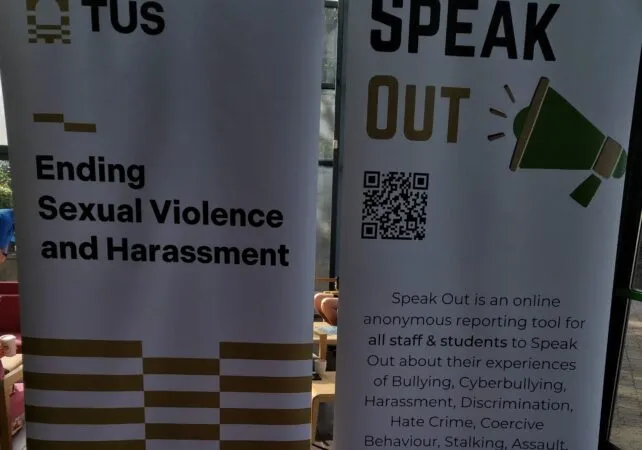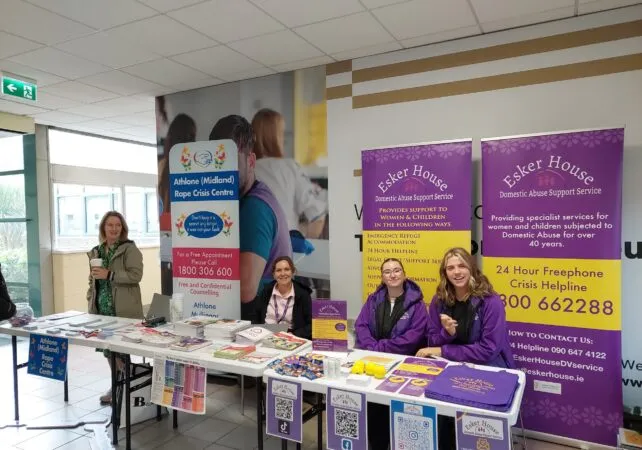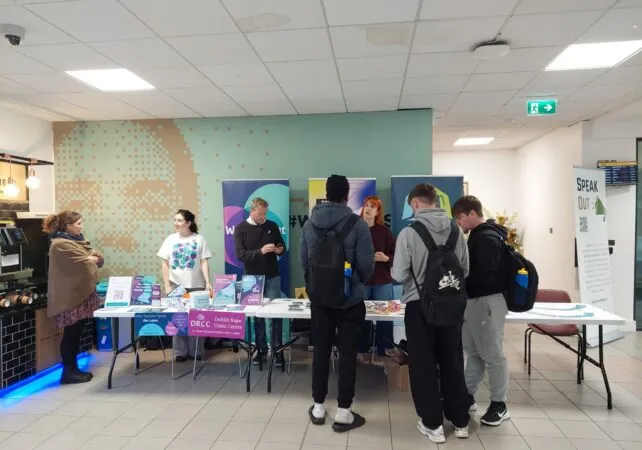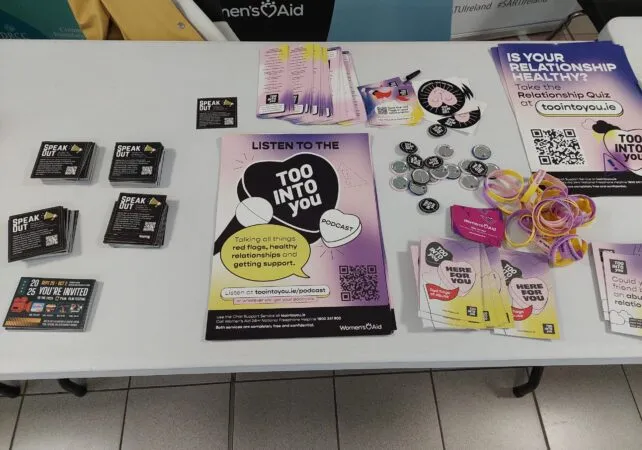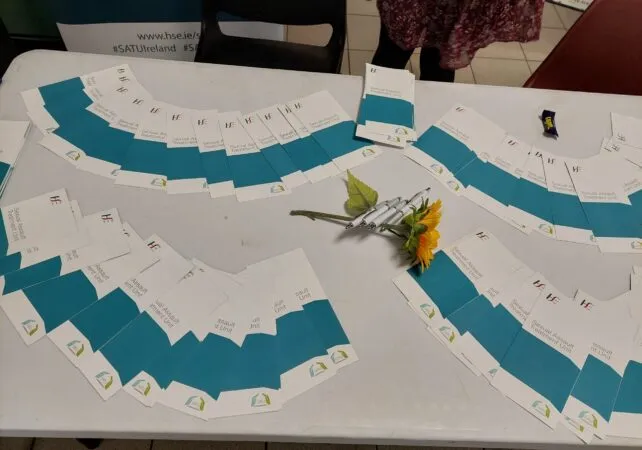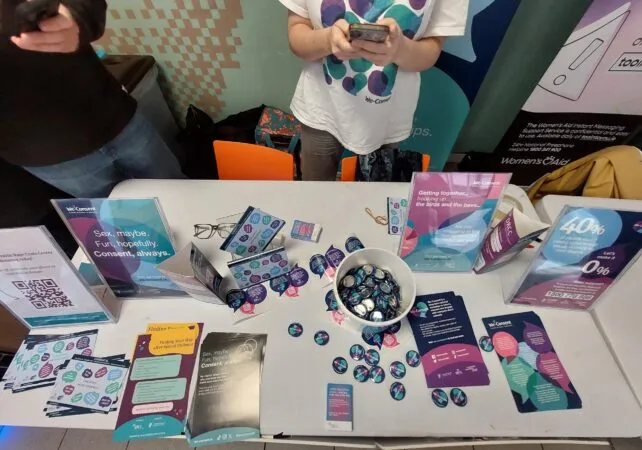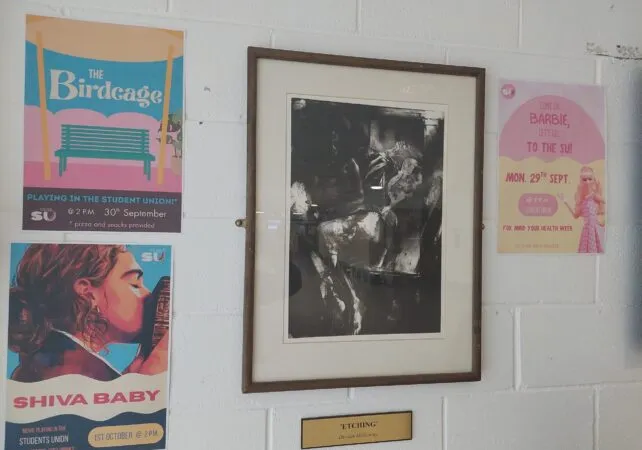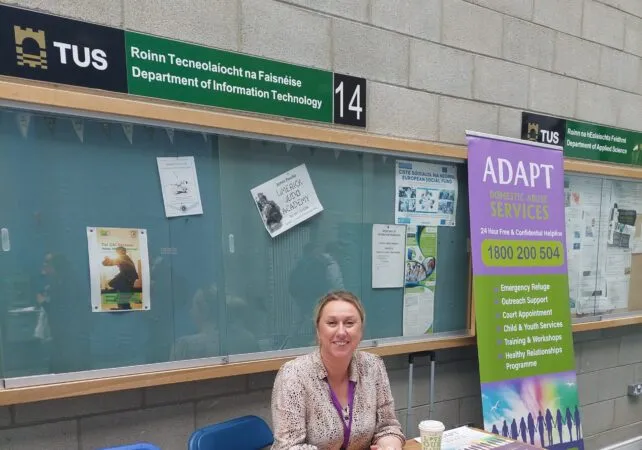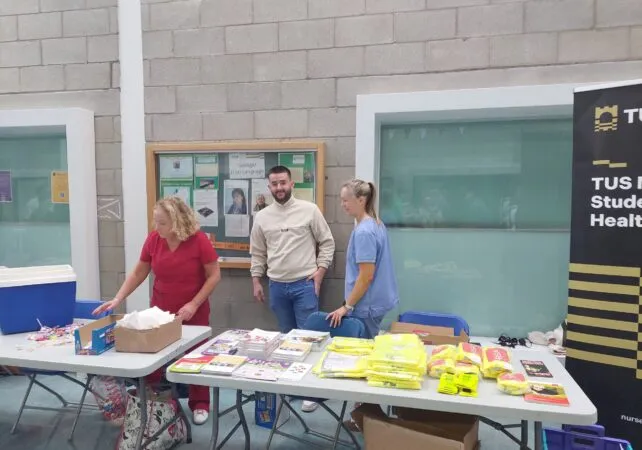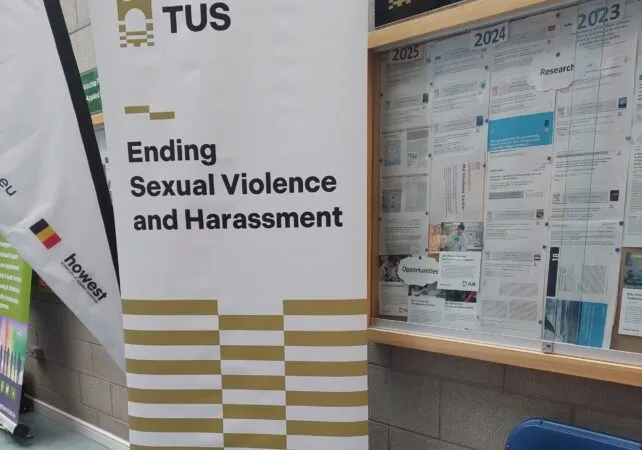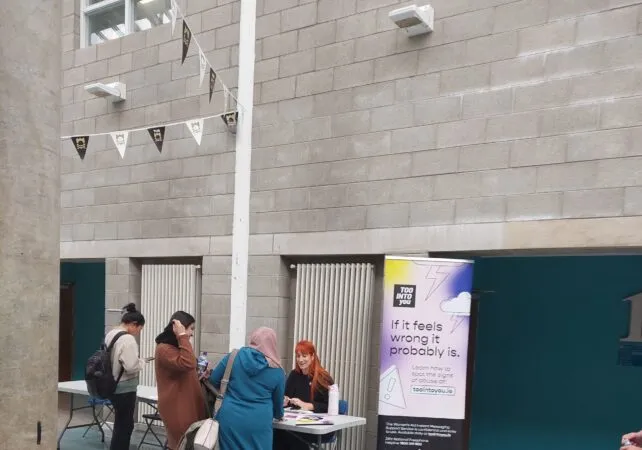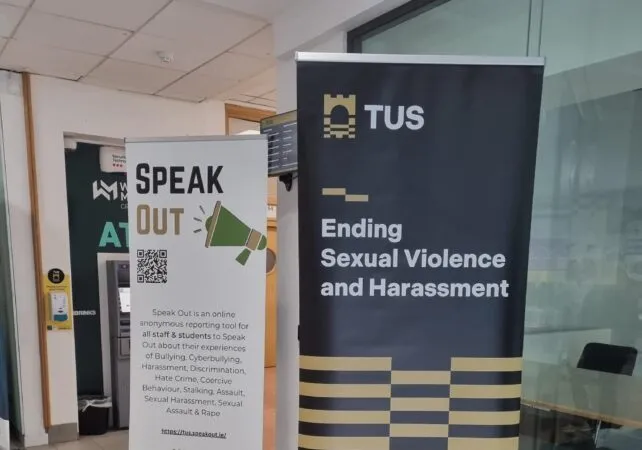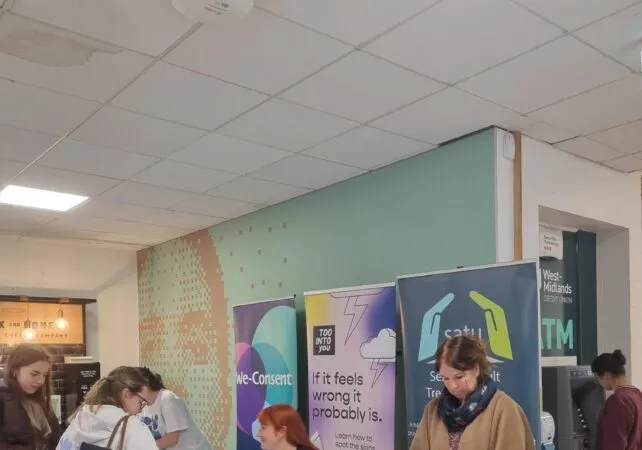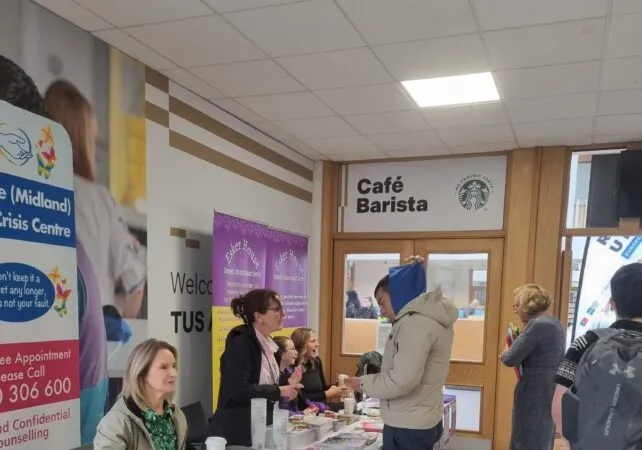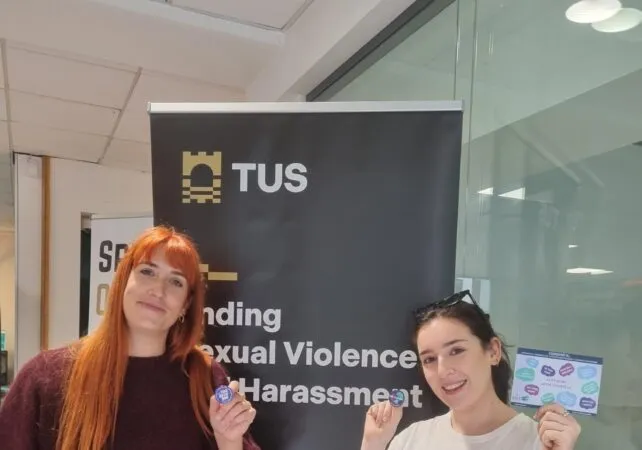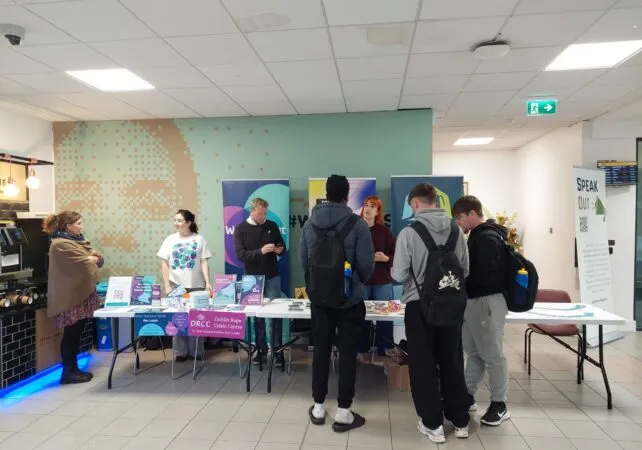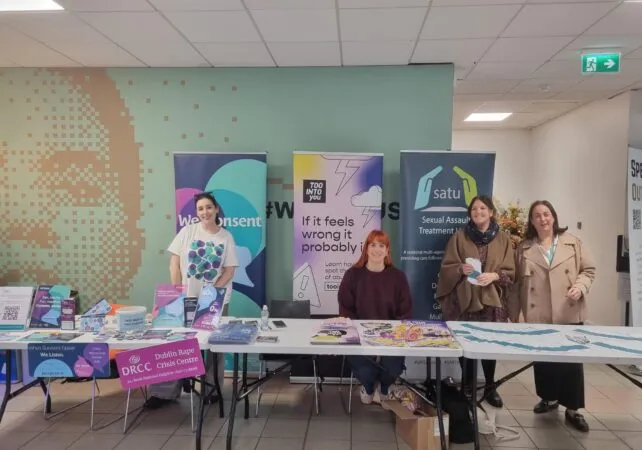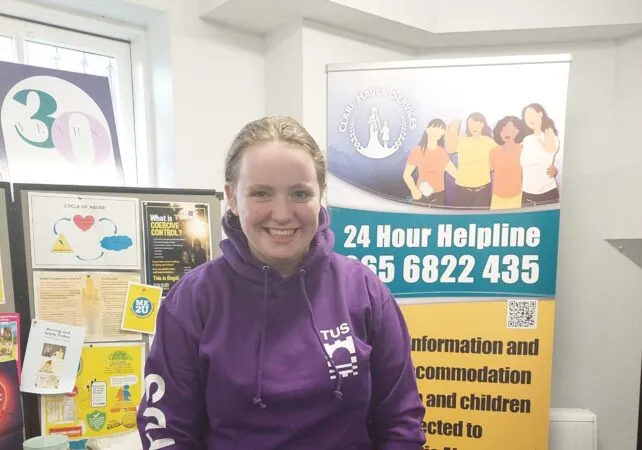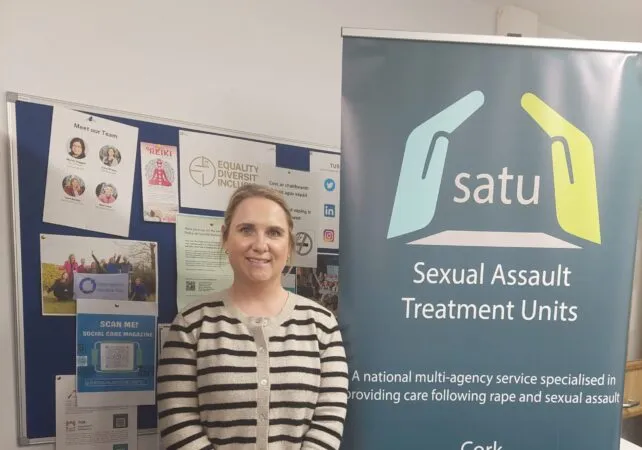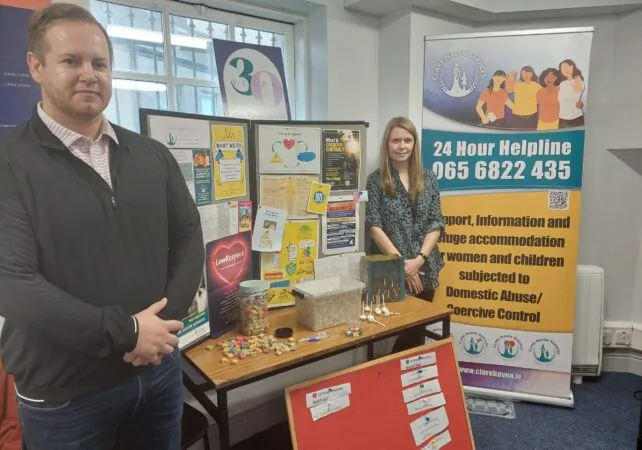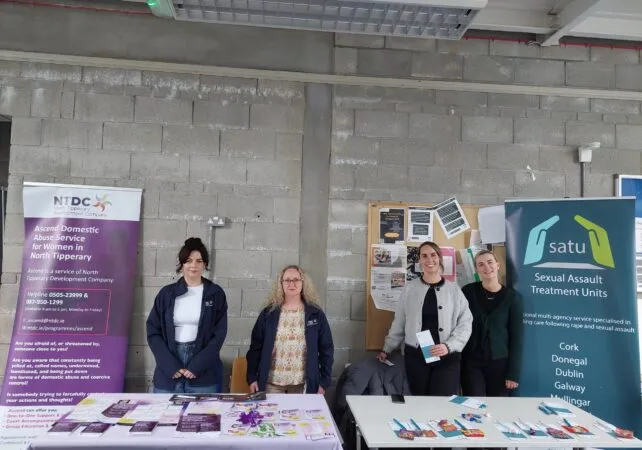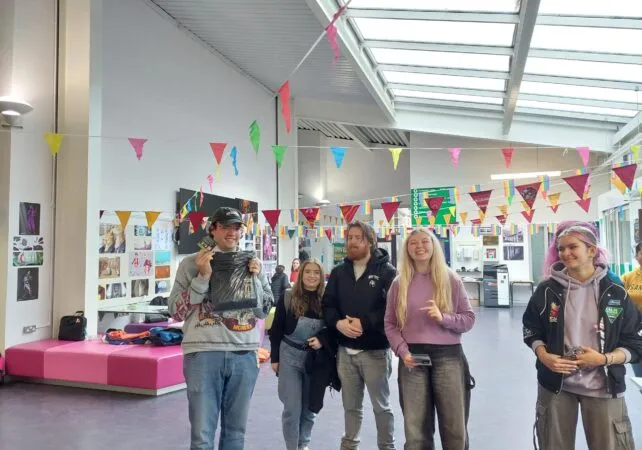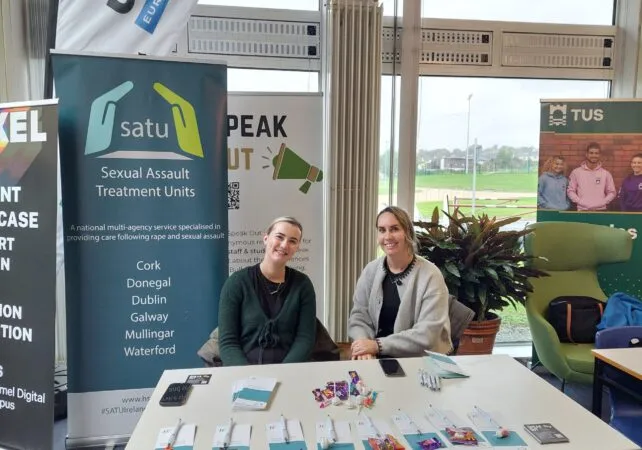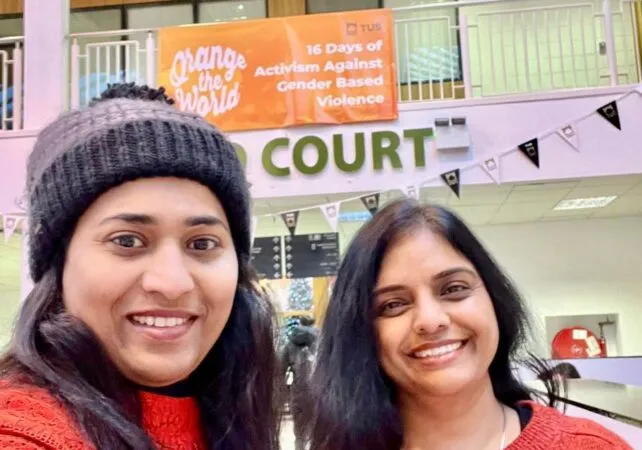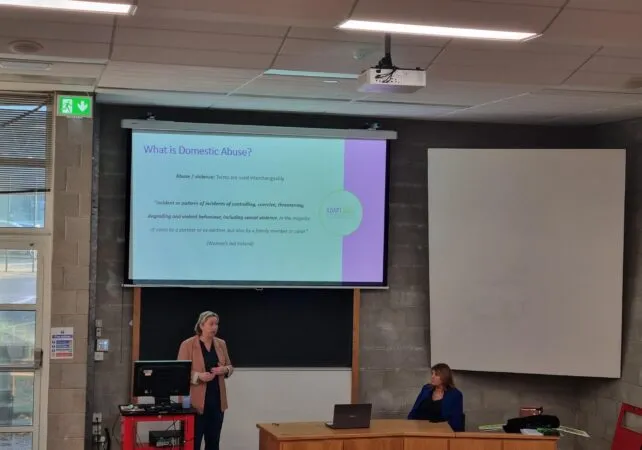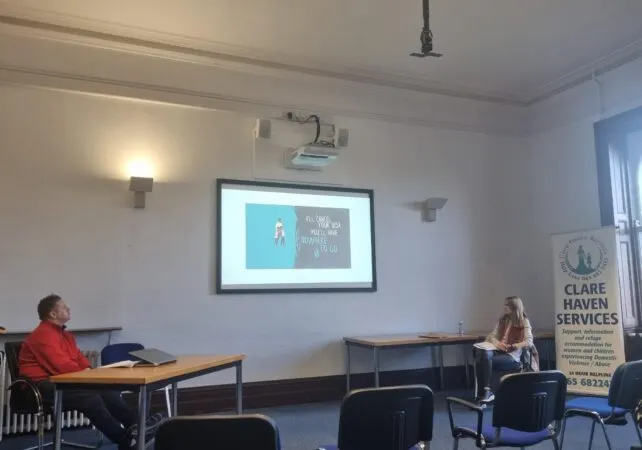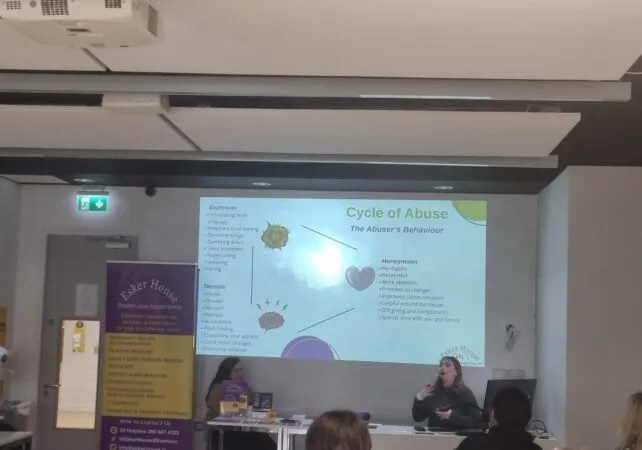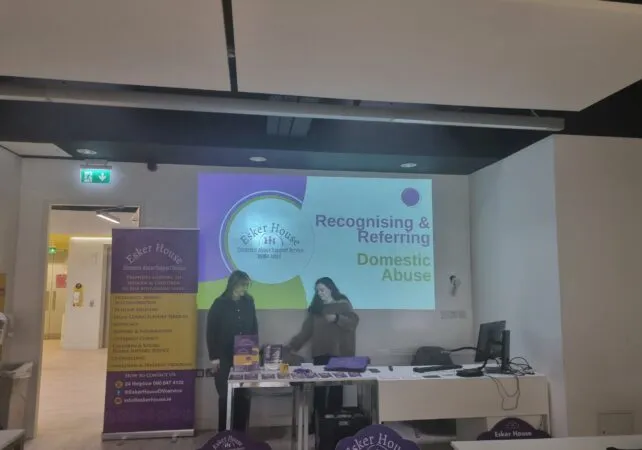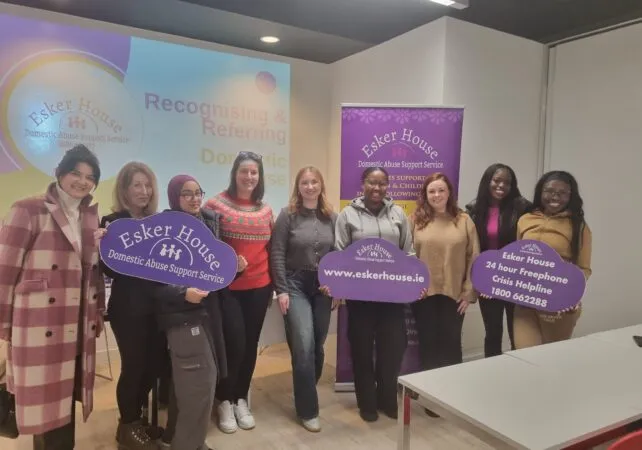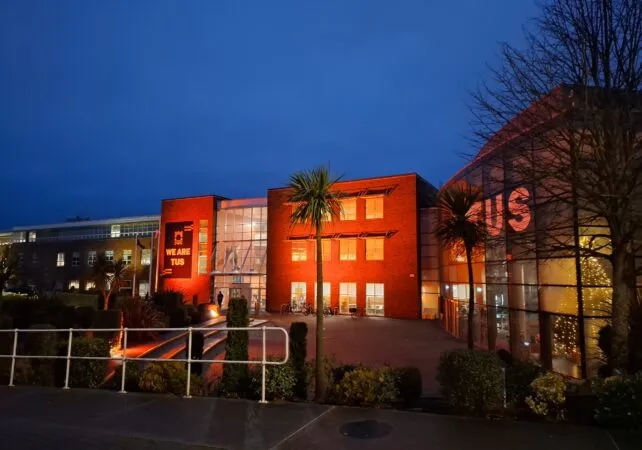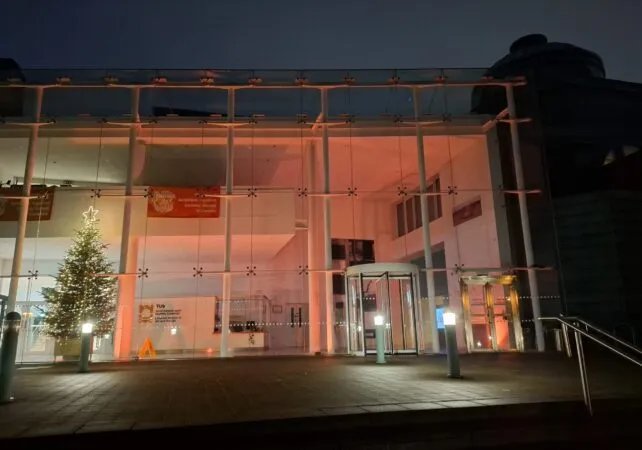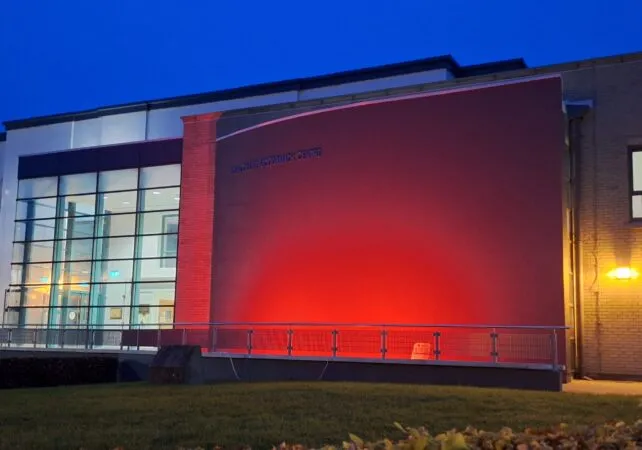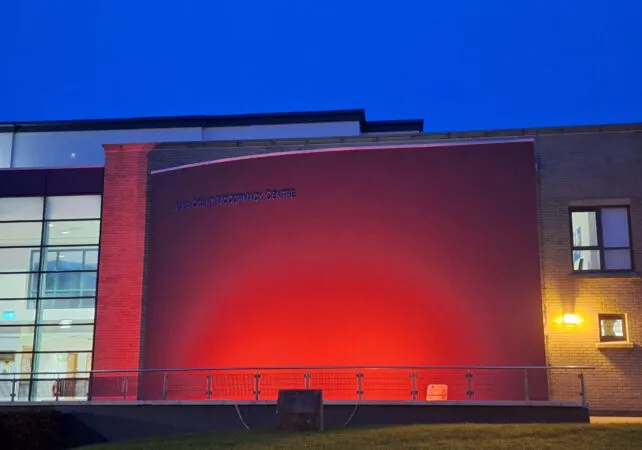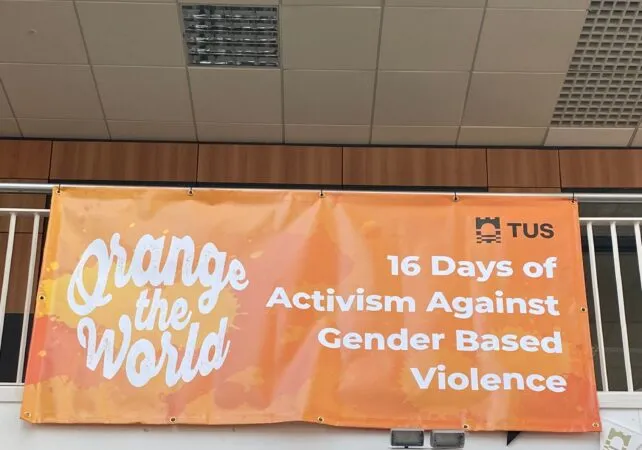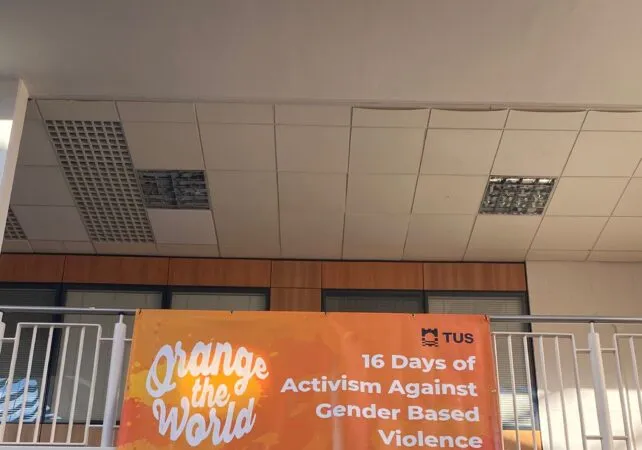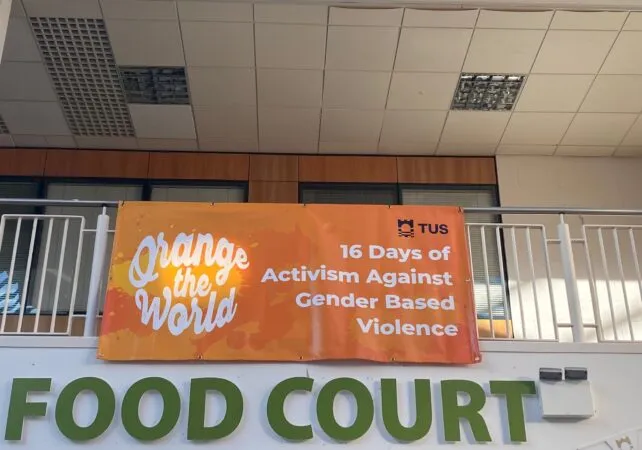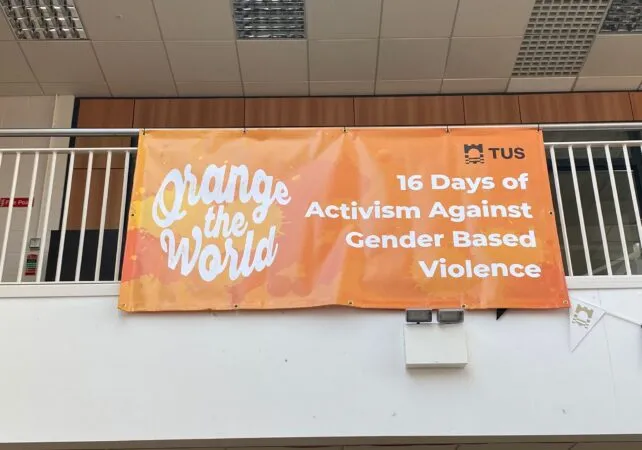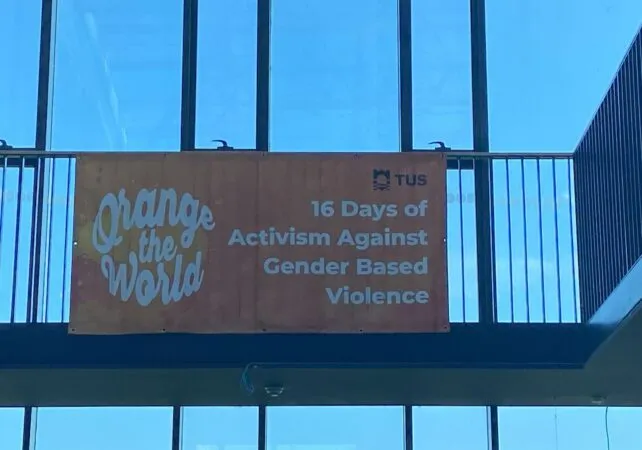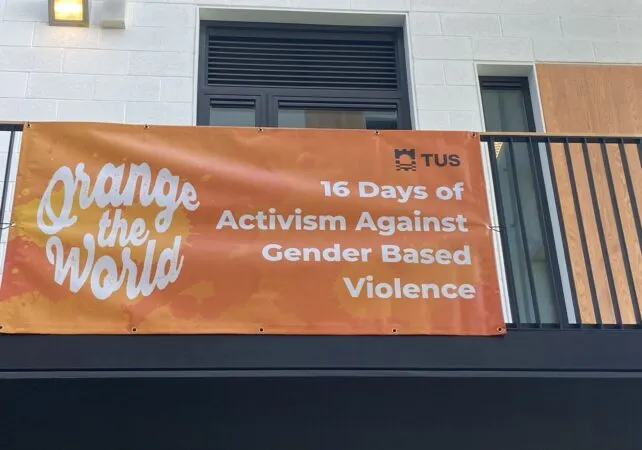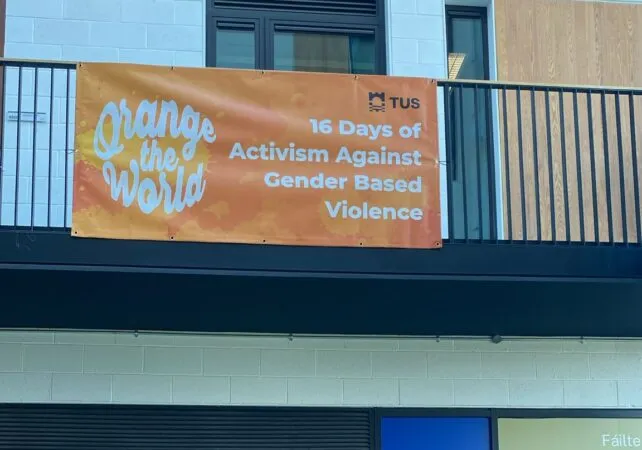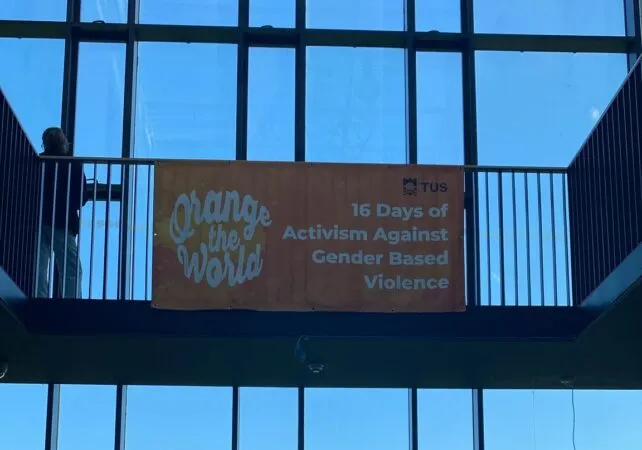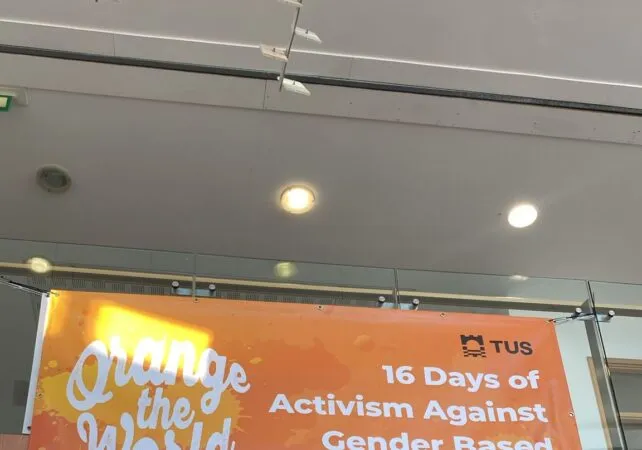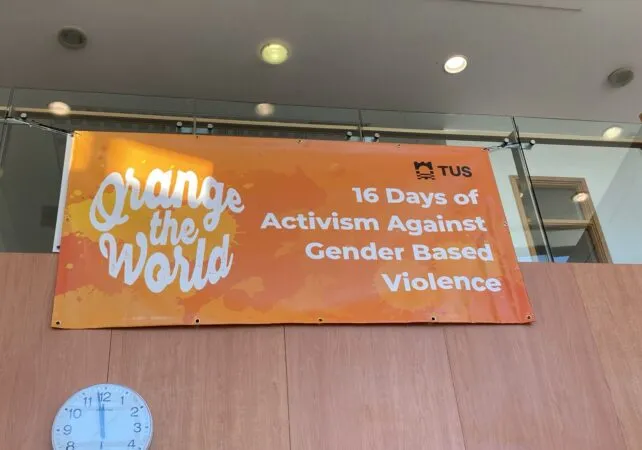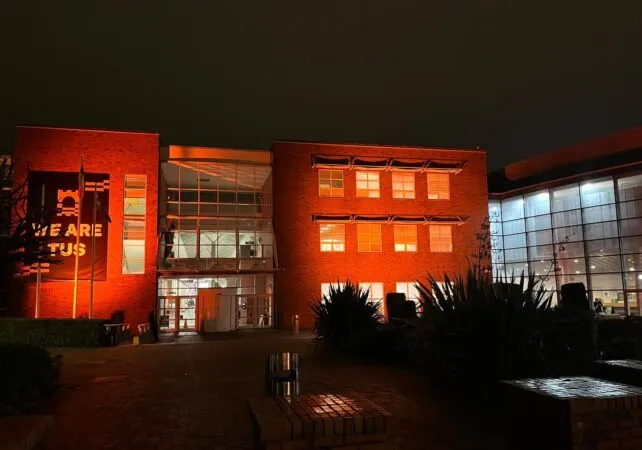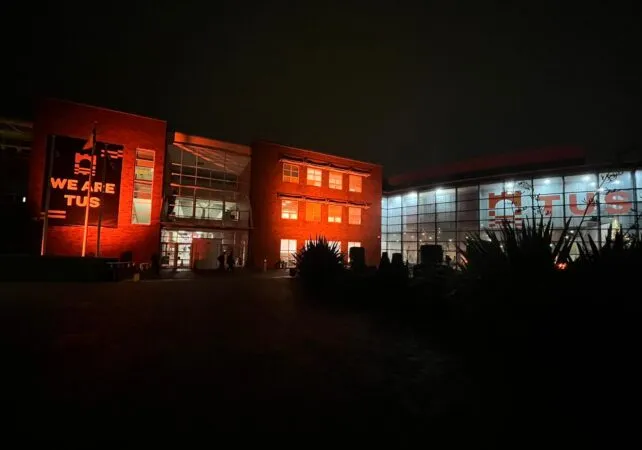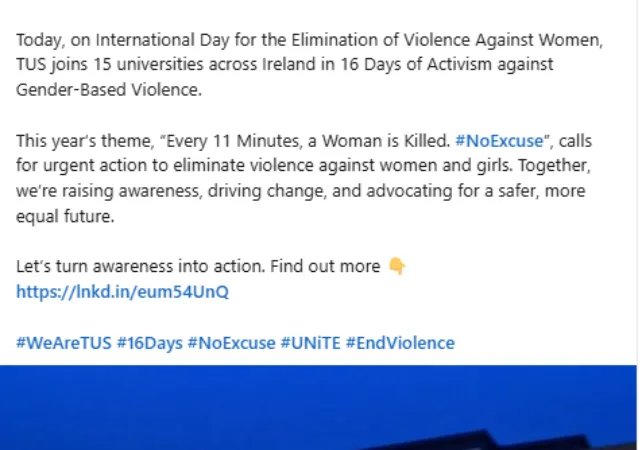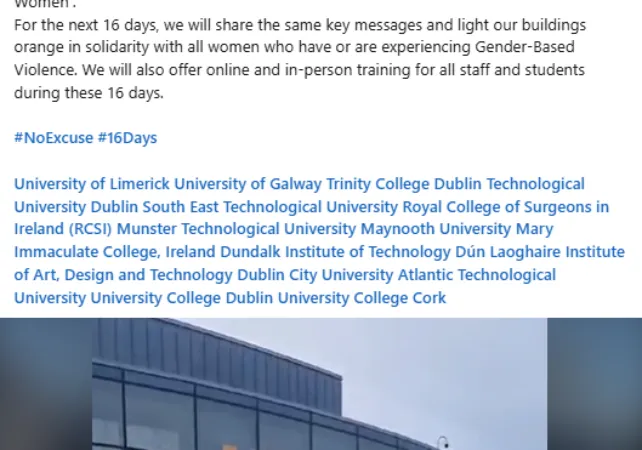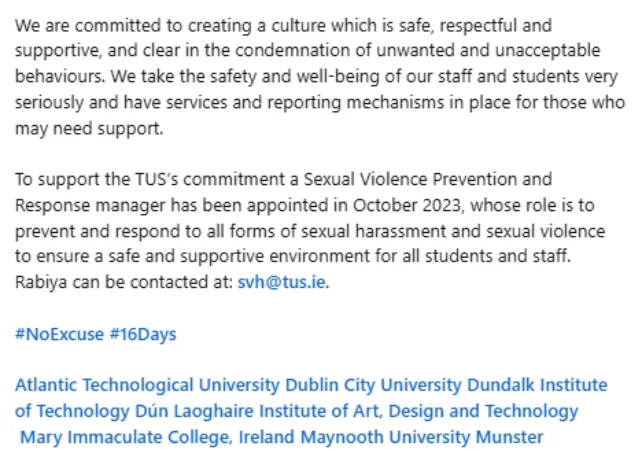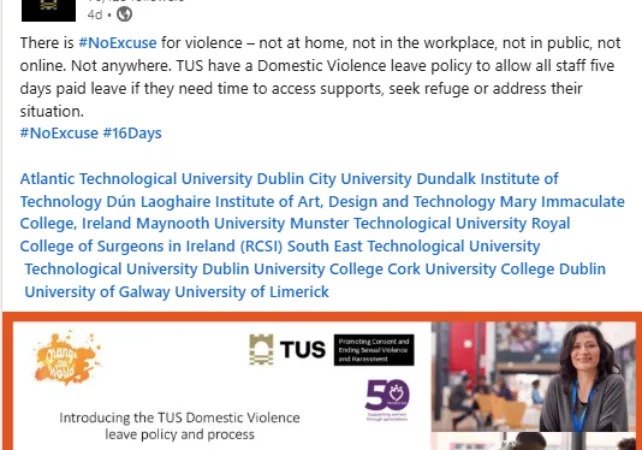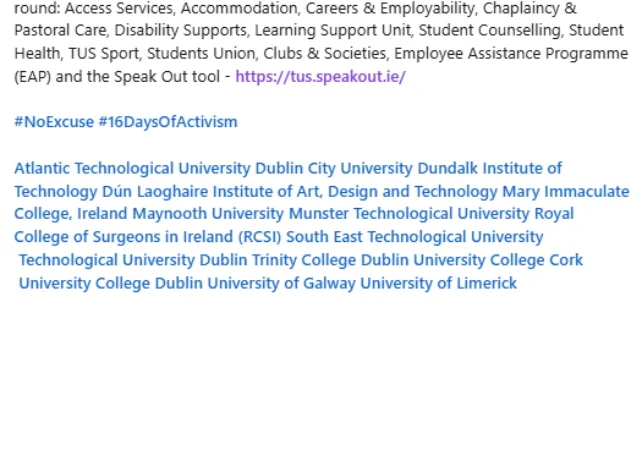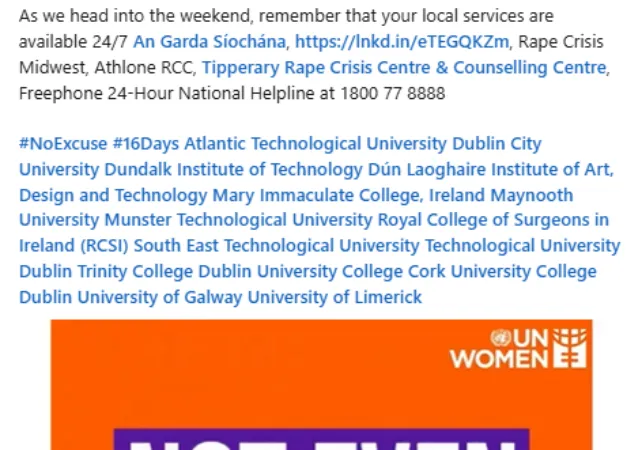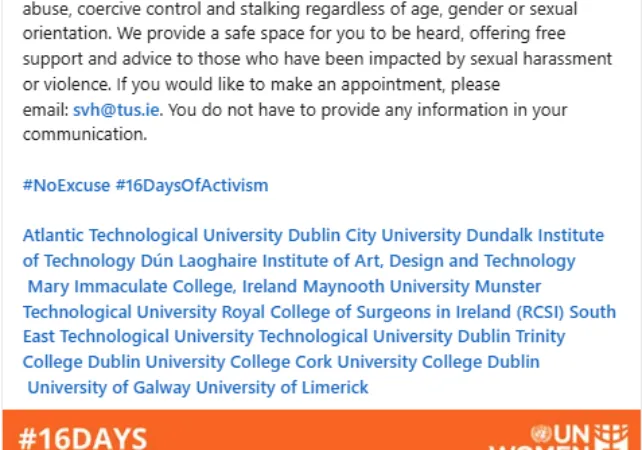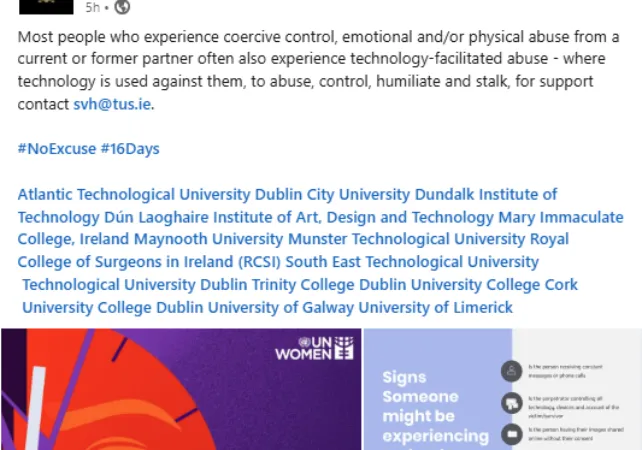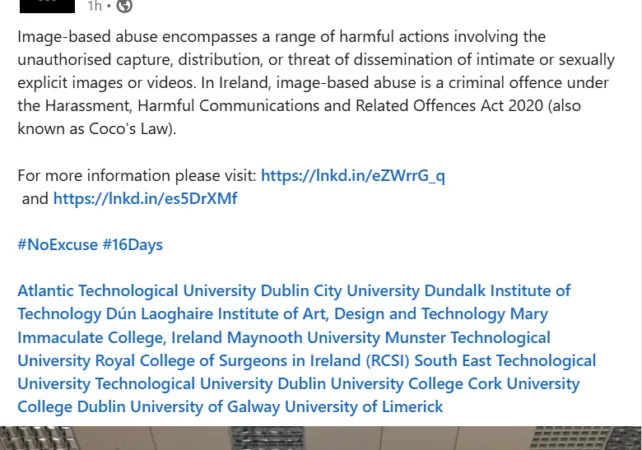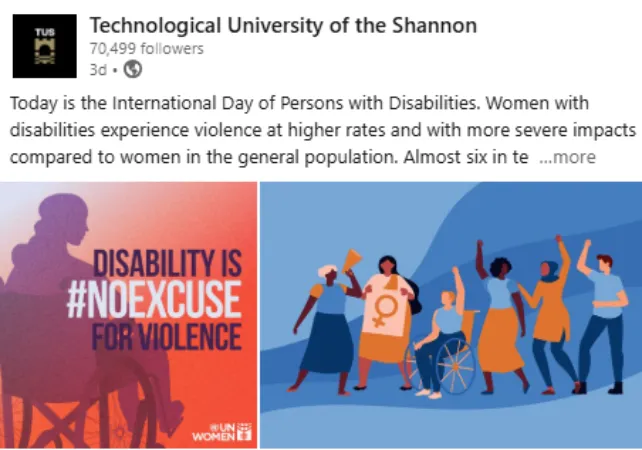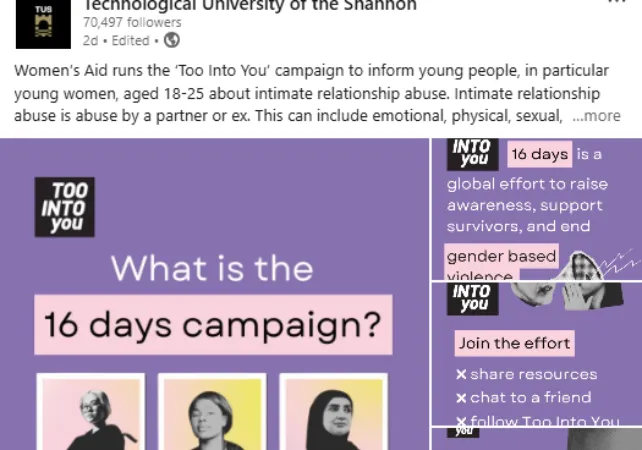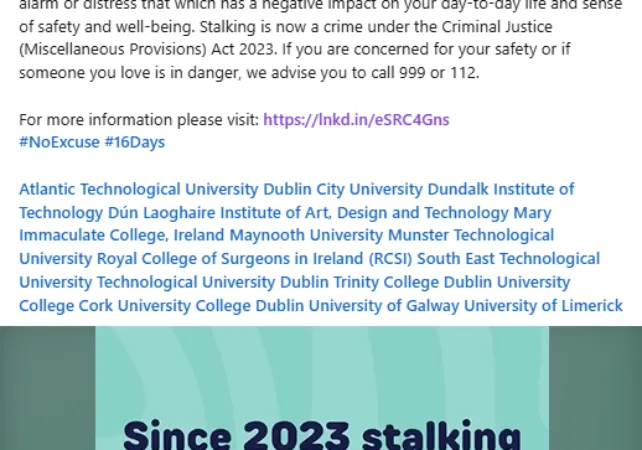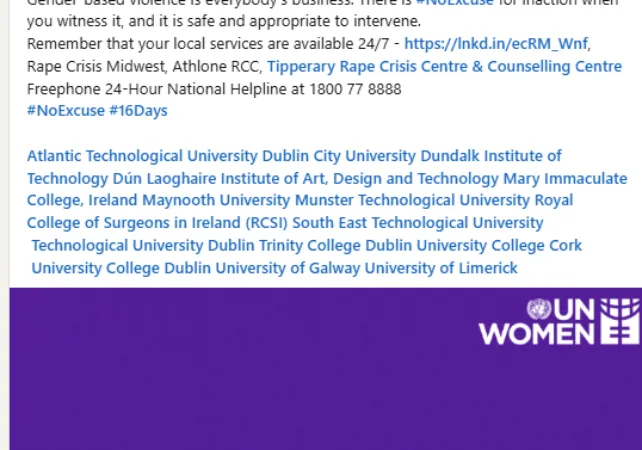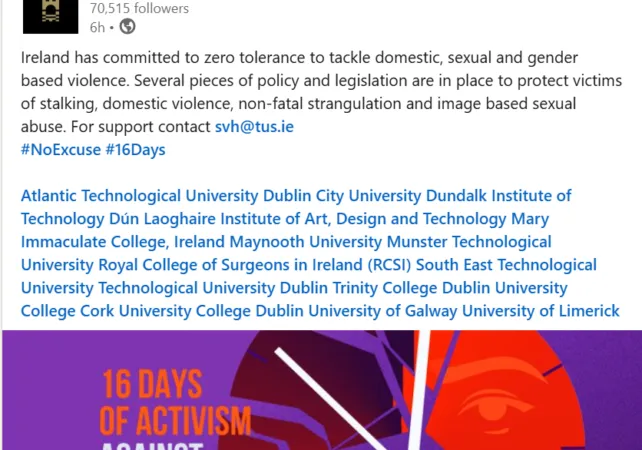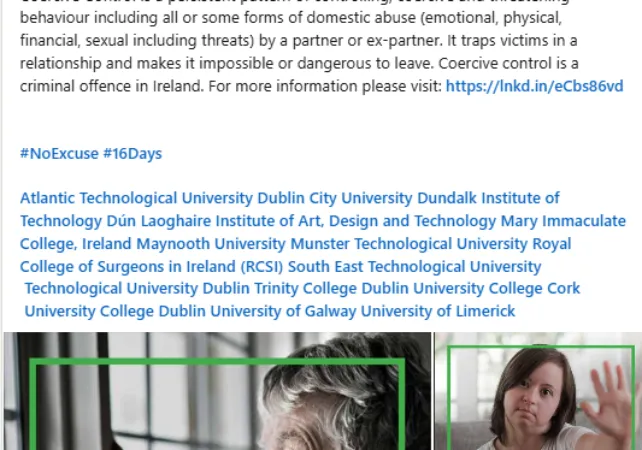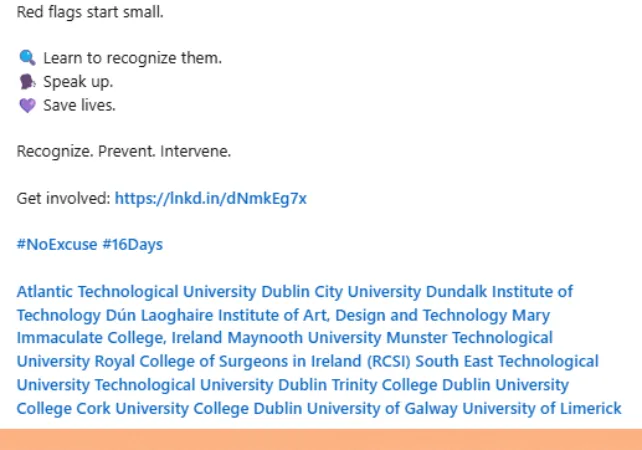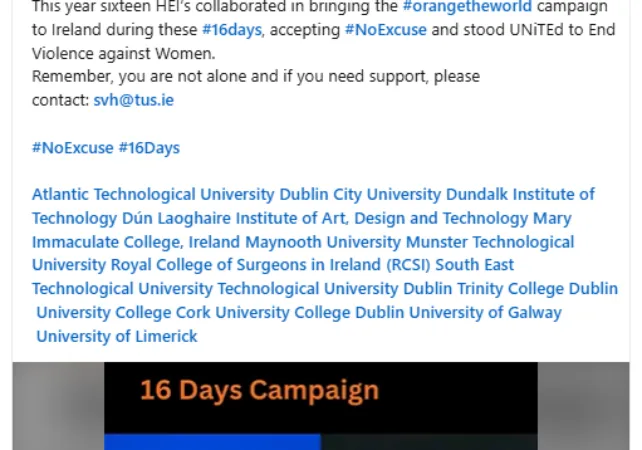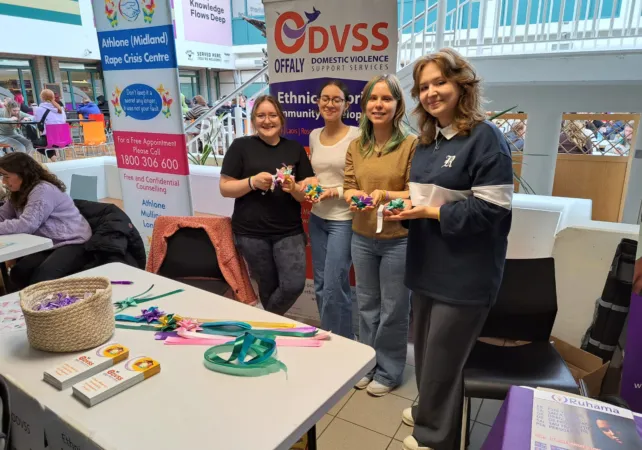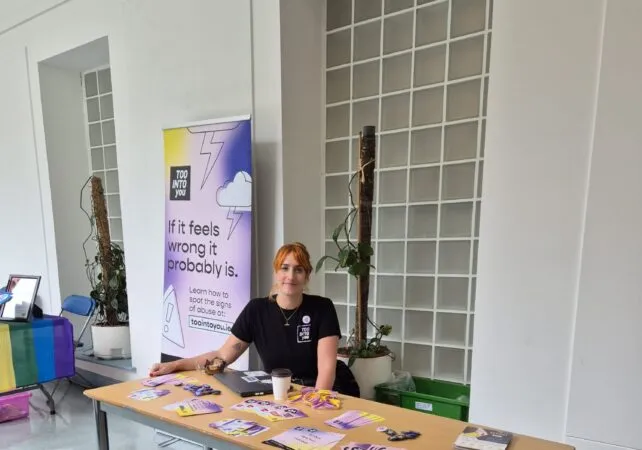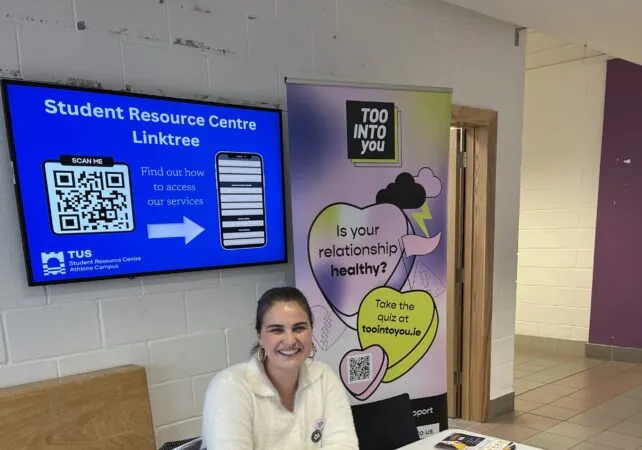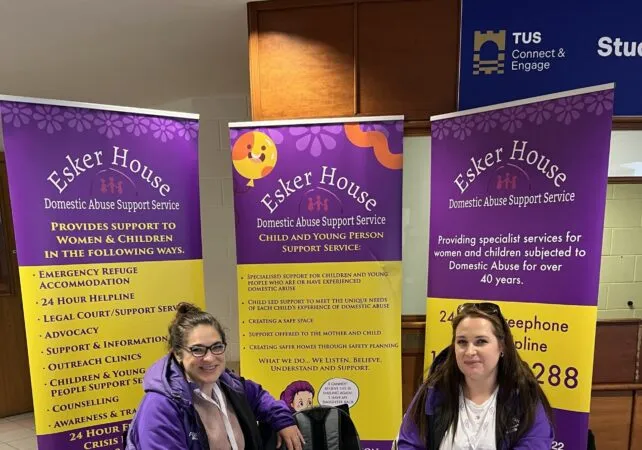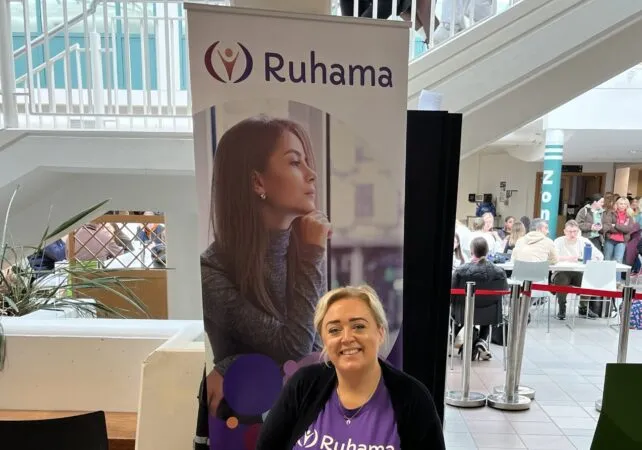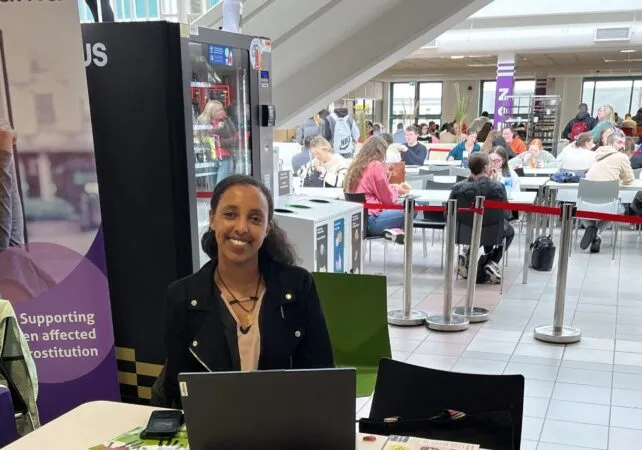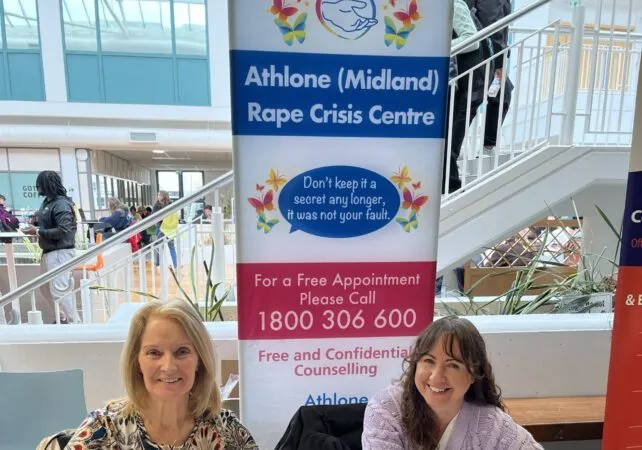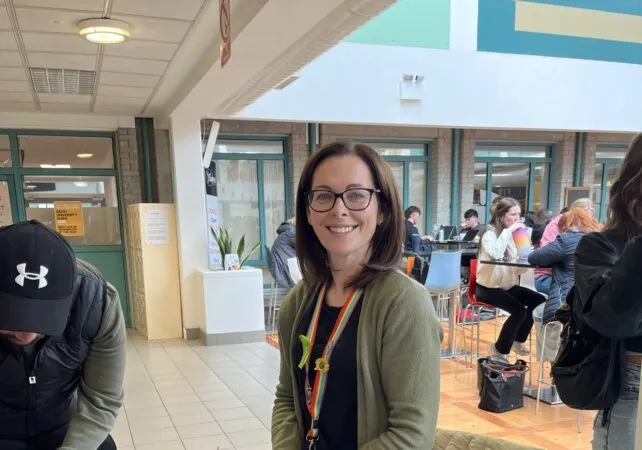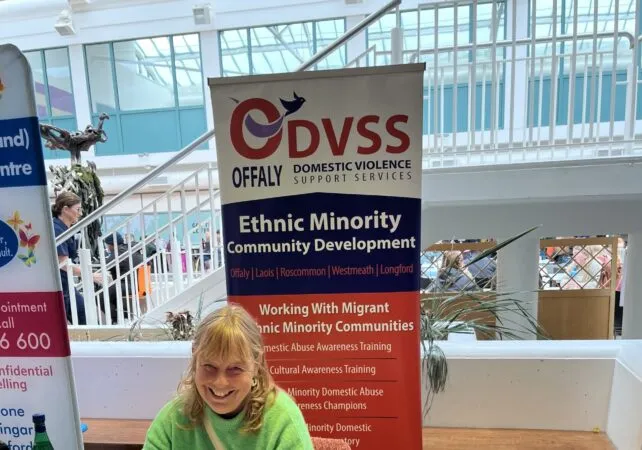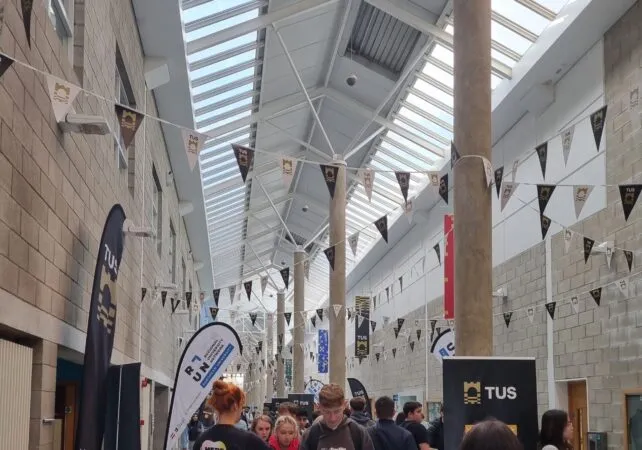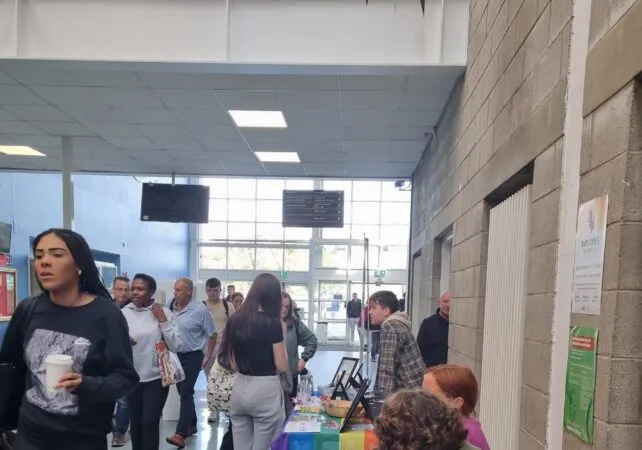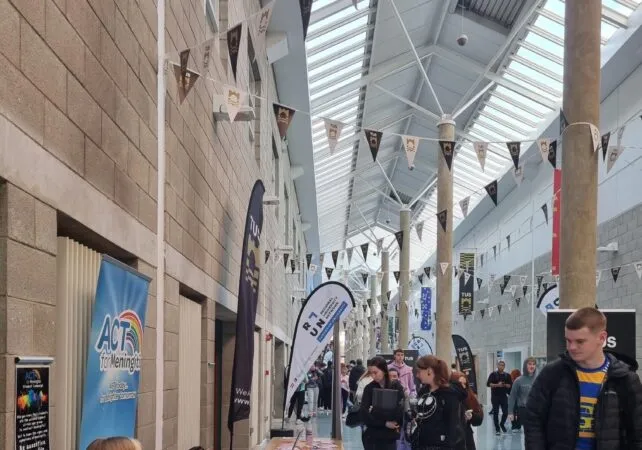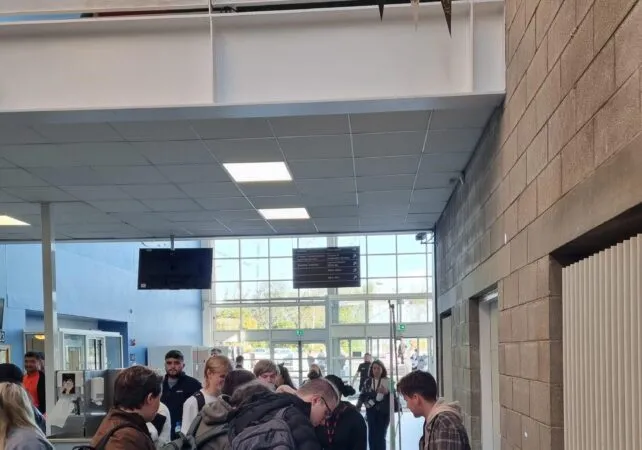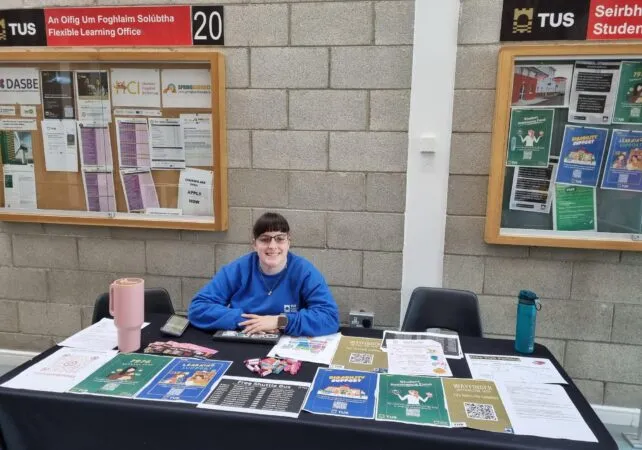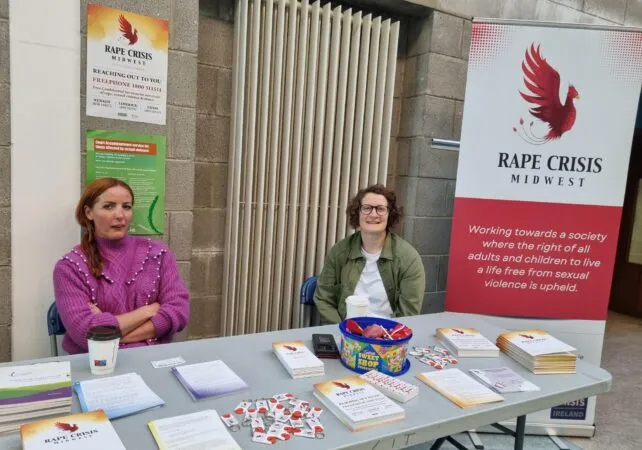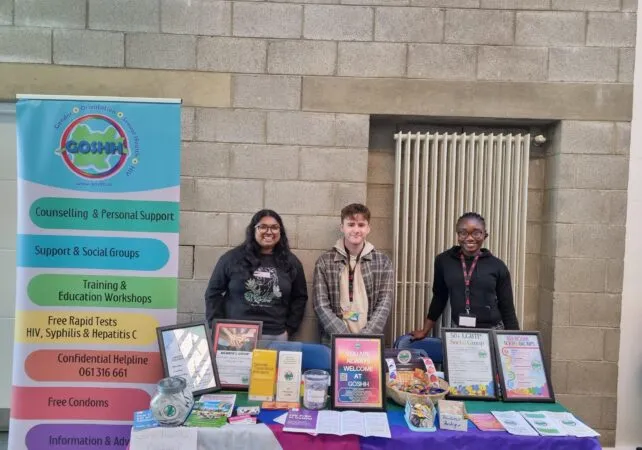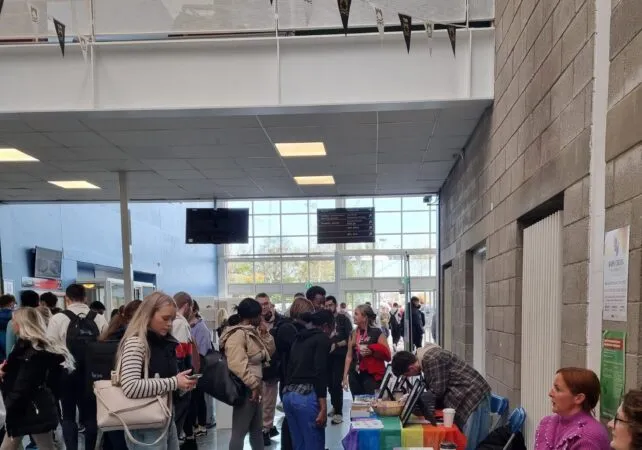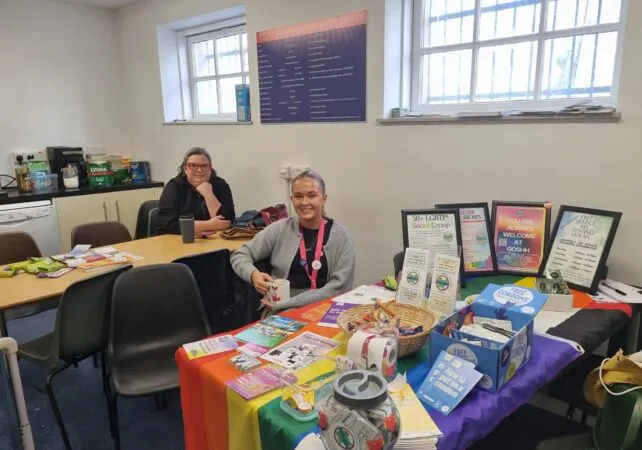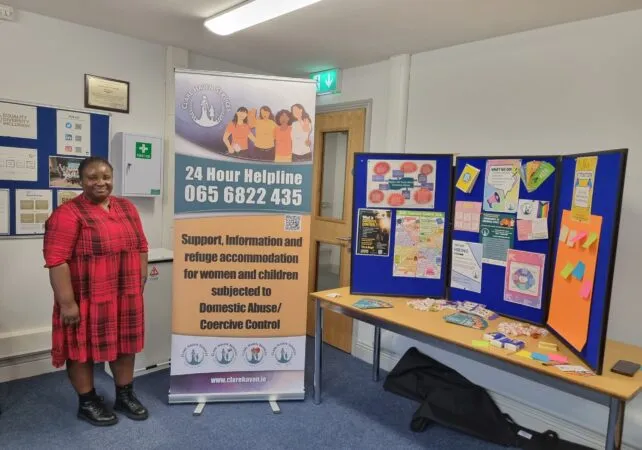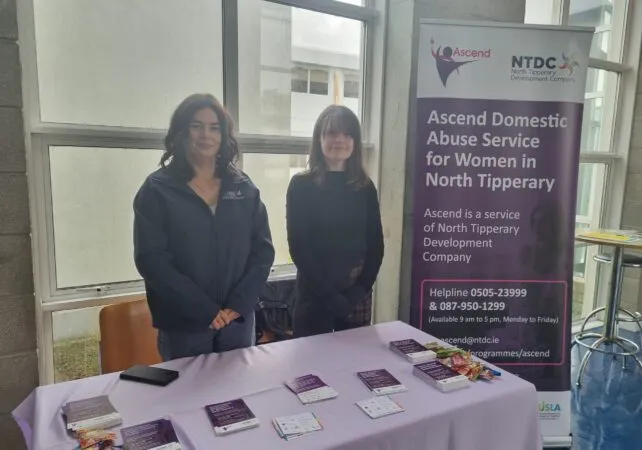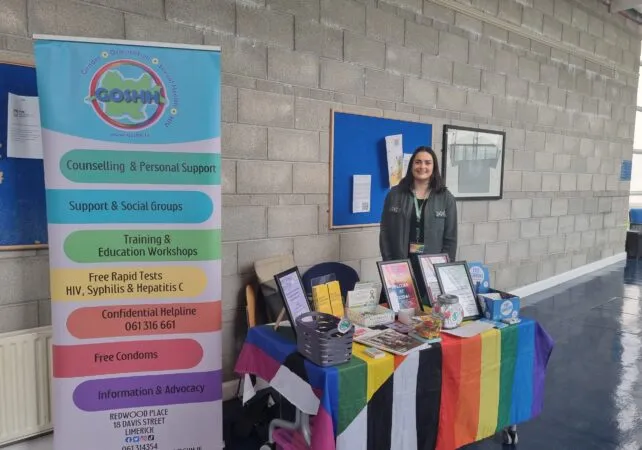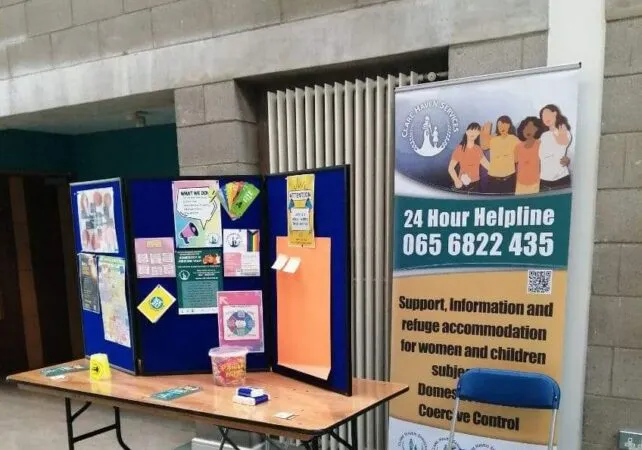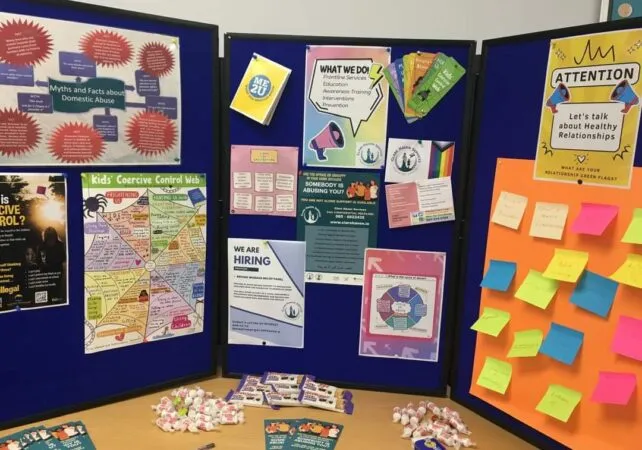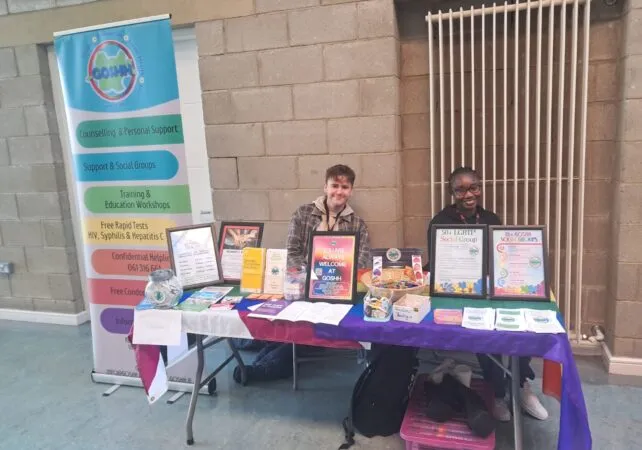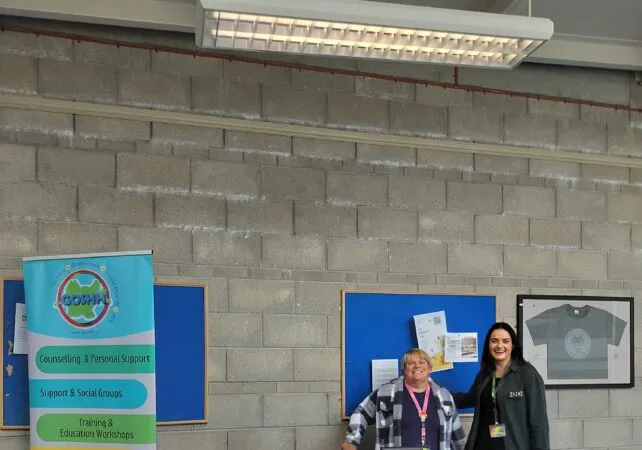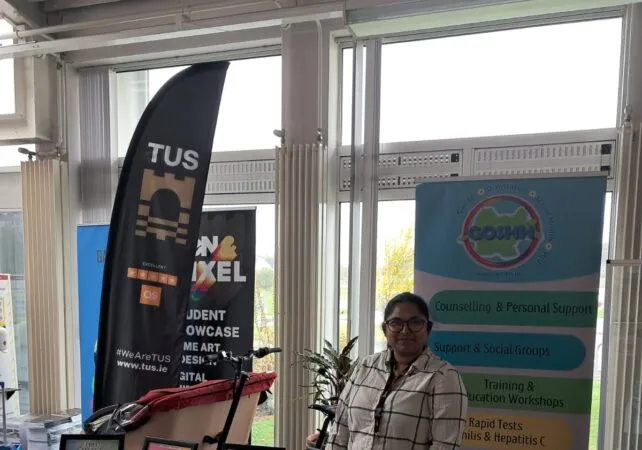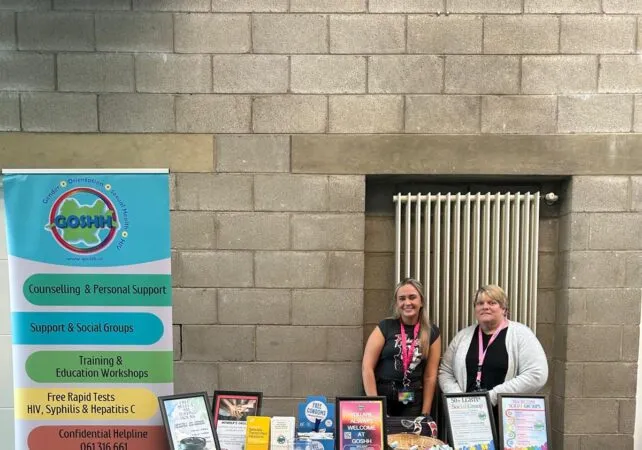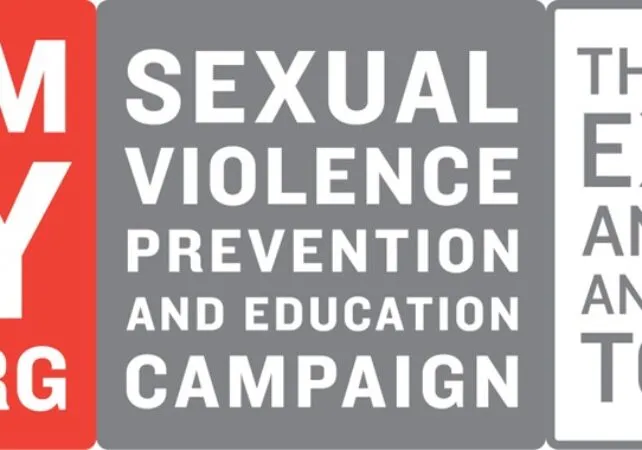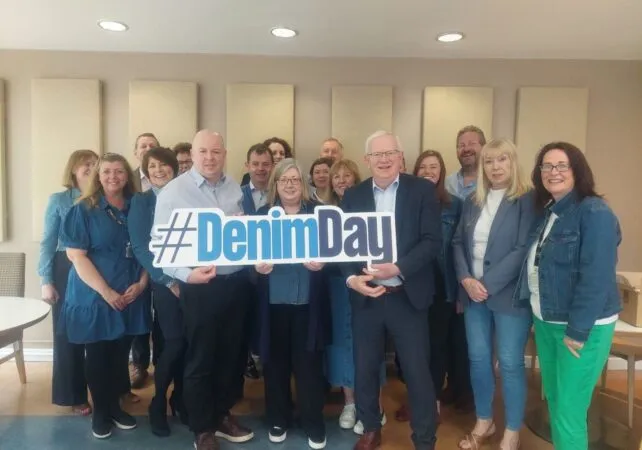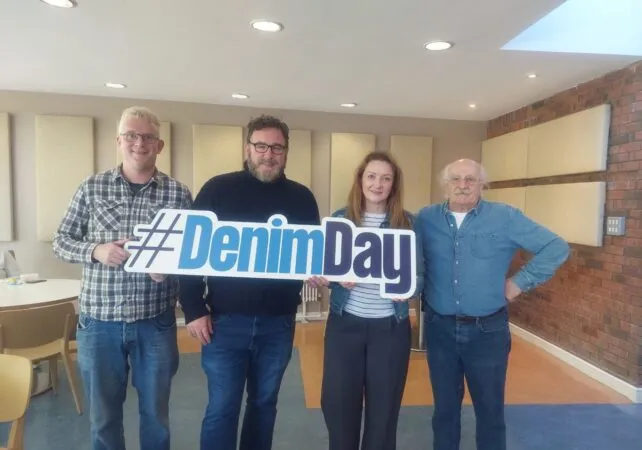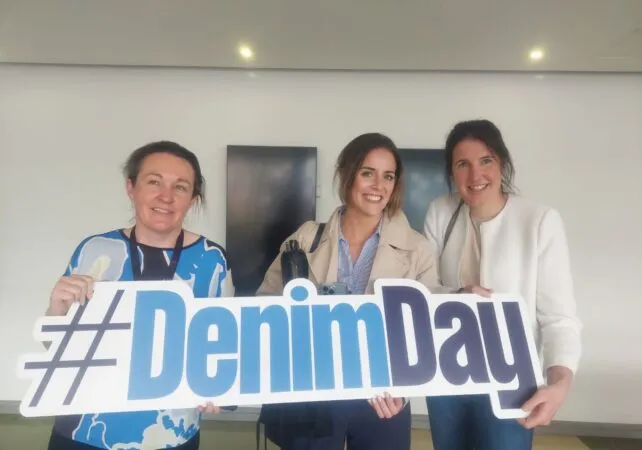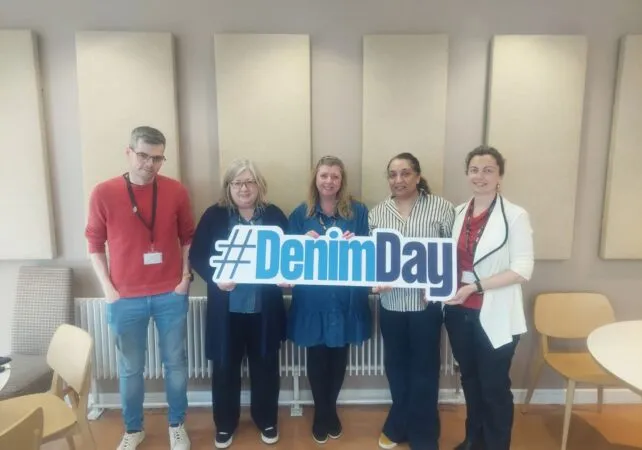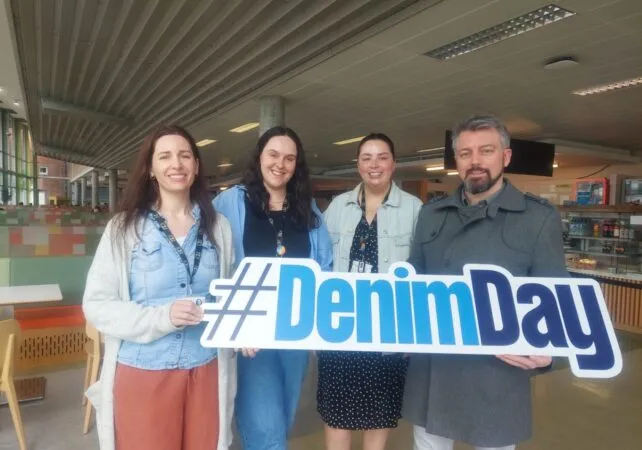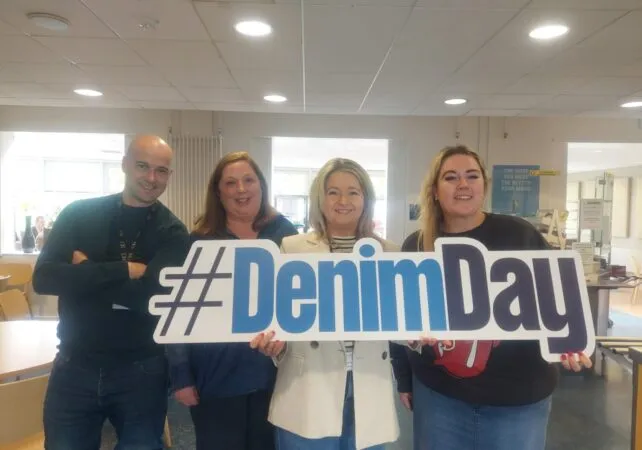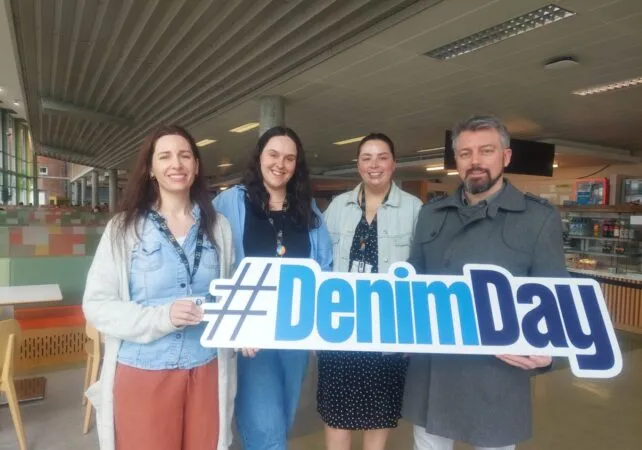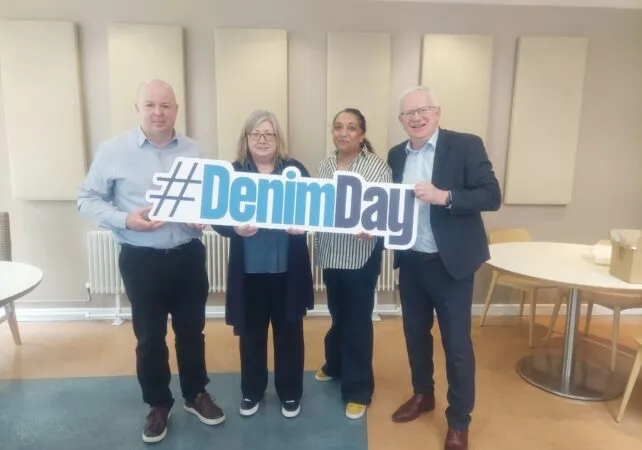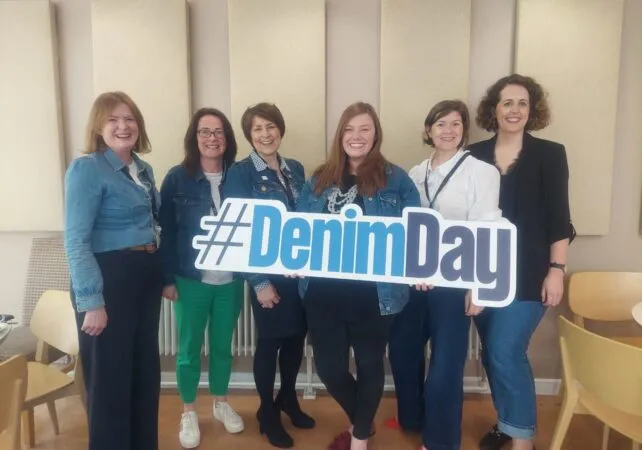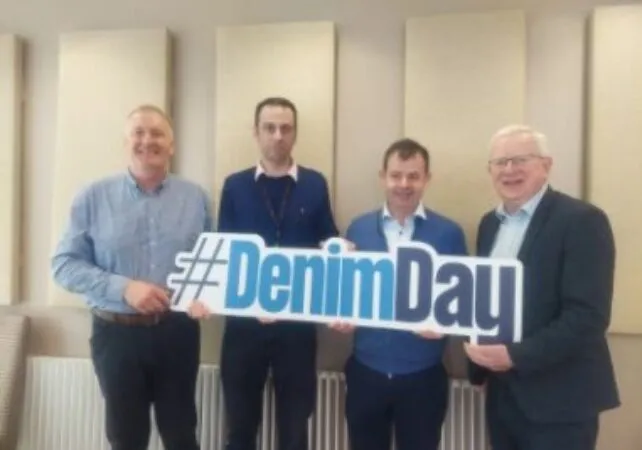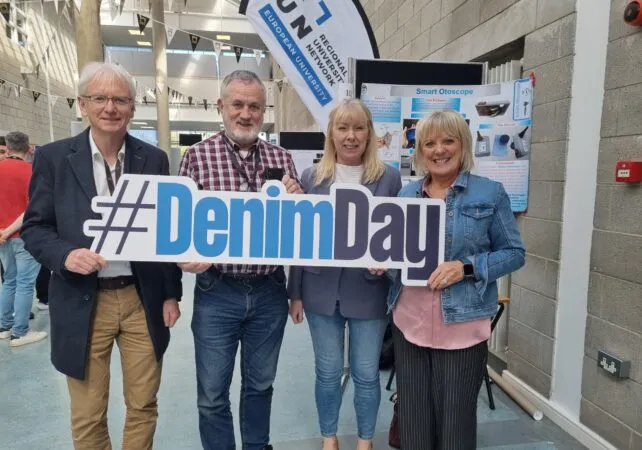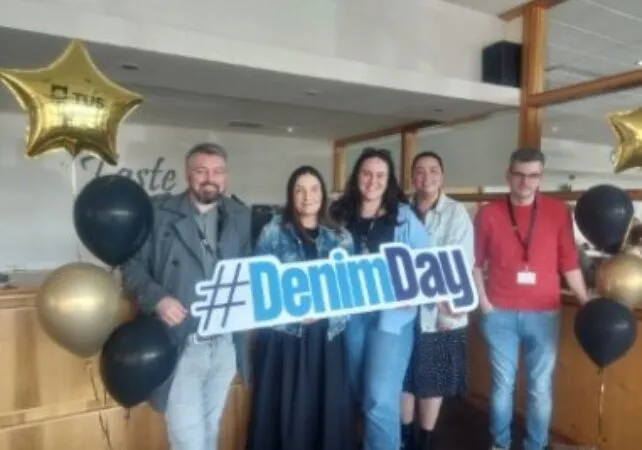Supporting Trauma Informed Responses to Sensitive Disclosures
Why is this programme important?
This programme has been developed to respond to reports and disclosures of any nature in a trauma-informed fashion. Engaging in this programme offers you a great opportunity to deepen your understanding, enhance your practical skills in addressing trauma, and provide you with the appropriate knowledge to ensure that your response is trauma-informed.
What does trauma-informed mean?
It means becoming aware of trauma’s many personal and societal consequences, anticipating how trauma survivors may respond to our words and actions, and doing our part to create a world that does not cause further harm.
It means changing the focus of our interventions from asking ‘What’s wrong with you?’ to ‘What has happened to you?’
Is this course for me?
This programme is valuable for those who receive disclosures as part of their role at TUS, those who have received training to become ESVH Allies, as well as those ‘second line’ staff who will have a role in ensuring a trauma-informed response. This can include staff who may be involved in case management, and/or safety plans, e.g. staff working in HR, student administration, course administration, and so on.
What will I learn?
The Programme is structured in three broad sections.
1. About Trauma
Covering the nature and effects of trauma, and classic trauma responses.
2. Trauma-Informed Practice
The section of the programme aims to equip participants with knowledge of the fundamental principles and guidance on the essential practical skills of trauma-informed practice.
3. Trauma-Informed Responses to Sexual Violence
Exploring the nature of sexual violence and harassment (SVH), and how to apply the trauma-informed skills to SVH disclosures
You can register for this 1-hour training at Online staff training- Supporting Trauma Informed Responses to Sensitive Disclosures
Consent workshops and information
TUS offers Active* Consent Workshops to all first-year students. The workshop focuses on skills and knowledge to navigate the college landscape and establish healthy, consensual sexual relationships, as well as develop an awareness of sexual violence and harassment and local supports/services.
For more information Active* Consent – Ireland’s national resource hub on consent
Consent HubSexual Violence and Harassment: How to Support Yourself and Your Peers module
Upon completion of an Active*Consent workshop, students are advised to take the Active*Consent Sexual Violence and Harassment eLearning module. Staff and students can also access this module.
This module builds on topics explored in the Active*Consent online workshop to introduce a more nuanced understanding of sexual violence, harassment and support services available to students who have had negative sexual experiences.
This 45-minute self-guided eLearning module and provides viewers with introductory skills in supporting anyone who discloses negative experiences and how to safely call out and intervene in developing negative situations in their peer group and community.
Sexual Violence and Harassment: How to Support Yourself and your Peers eLearning Midwest
Sexual Violence and Harassment: How to Support Yourself and your Peers eLearning Midlands
Bystander intervention
UCC’s Bystander Intervention Programme provides staff and students with an understanding of key issues related to consent and the boundaries surrounding sexual assault, rape and abusive relationships. It enables them to develop key intervention skills which can be utilised in any setting.
Available to all staff and students at TUS, the programme consists of 1.5 to 2 hours online training with 5 self-directed modules.
This is available to Students at TUS MW Student Bystander.
This is available to all Staff at TUS ML Moodle and TUS MW Moodle.
Active* Consent created ‘How to Support Yourself and Your Peers’ training which is also available on our Ending Sexual Violence and Harassment moodle page for all staff and students. This course moves users from understanding and applying Active* Consent to becoming an Active* Bystander. It provides participants with introductory skills in supporting friends who disclose negative experiences and how to safely call out and intervene in developing negative situations in their peer group and community.
By empowering users to not only learn new terms but build a proactive skill set, we believe that together we can step up to and work on ending sexual violence and harassment on all our campuses.
You can find more about how to support your peers here.
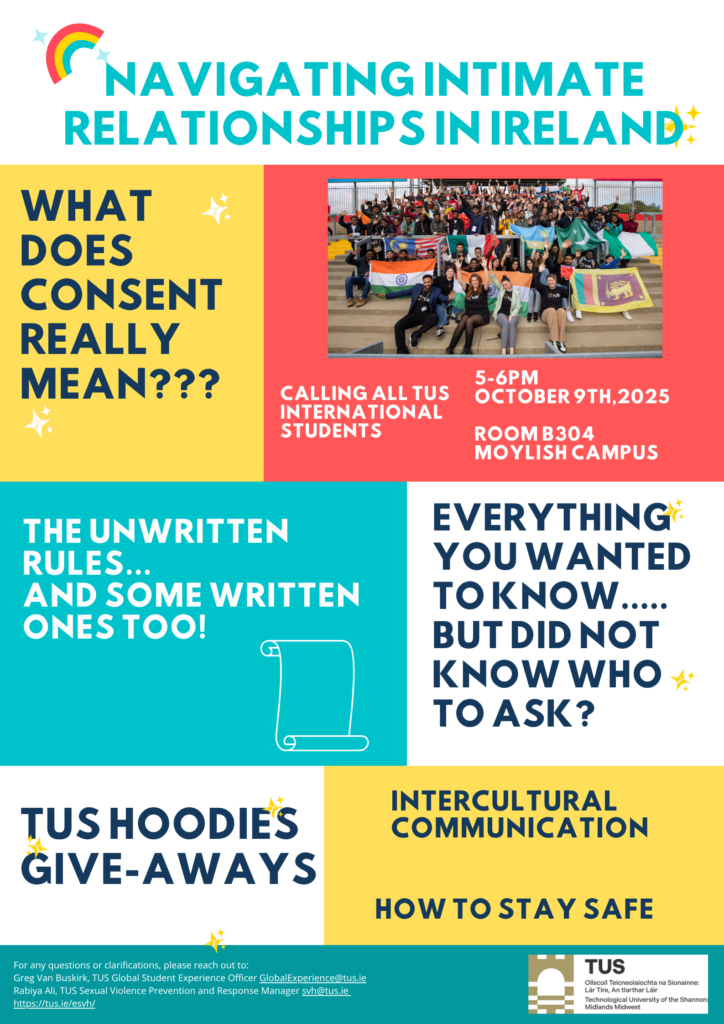
Disclosure training
This training with Galway Rape Crisis Centre will help staff understand the causes and effects of sexual violence, examine attitudes, values, and beliefs about sexual violence, and provide you with the necessary tools and language if you receive a disclosure of sexual violence.
After the training, you will be asked if you would like to be an ESVH Ally. This is someone who has received training on supporting disclosures relating to sexual violence and harassment and is willing to be an initial contact for TUS students and staff who may need someone to talk to. Their role is to listen in a non-judgmental manner and signpost advice to relevant support services. There is ongoing support for ESVH allies through the TUS Community of Practice. This voluntary space is facilitated by Student Counselling to facilitate learning from experiences of receiving disclosures, within the bounds of confidentiality, so that staff:
- feel further equipped in supporting initial disclosures,
- have a space to discuss any fears/queries they have in supporting disclosures,
- gain further clarity on the limits of their role in terms of being an ESVH Ally and have up to date knowledge of relevant support services available,
- have an avenue to provide feedback on further supports/training requirements.
Register your interest for these sessions for new trainees or the refresher training here: svh@tus.ie
Additional Staff Training
Facing Reality: Understanding and responding to the harms of pornography to young people– December 2025
This session will explore the Irish and international evidence on the consumption and impacts of pornography, with a particular focus on young people. Ruth will present findings from Facing Reality – a SERP Institute study on the links between pornography and the perpetration of violence against women and girls, commissioned by Women’s Aid. Eoghan will present evidence from the frontline on the experience and impacts of pornography on his students. Participants will have the opportunity to share insights from their own practice, followed by a discussion on how we can all play a role in mitigating the harms.
Ruth Breslin – Director of The Sexual Exploitation Research and Policy Institute (The SERP Institute, Ireland)
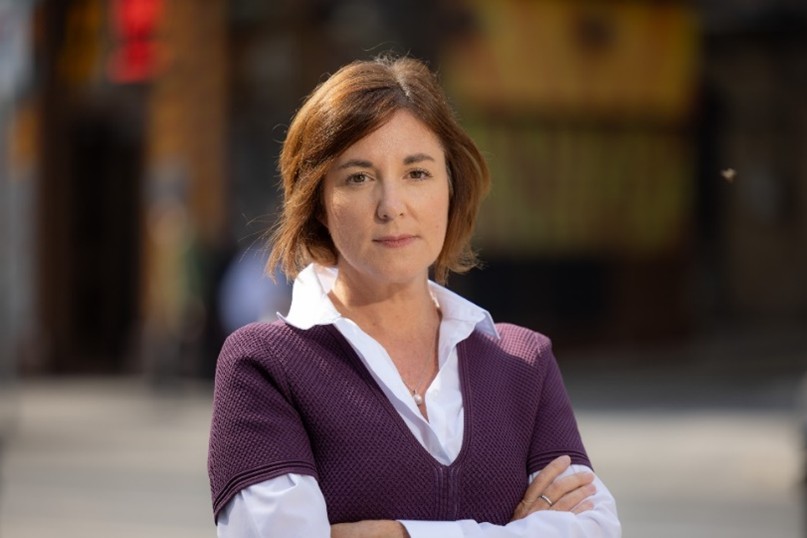
Ruth has over twenty-five years of research experience in both NGO and academic settings in Dublin, London, and New York. She has an MSc in Social Research Methods (Social Policy) from the London School of Economics and Political Science. The focus of Ruth’s work has been efforts to tackle and prevent violence against women and girls, and she has developed particular expertise in research and policy development on issues of commercial sexual exploitation. Ruth is regularly called upon to contribute to the development of evidence-based policy, legislation, and practice in this regard, in both Ireland and internationally. Ruth joined the SERP research programme at University College Dublin in 2018. She is the lead or co-author of all of SERP’s studies. Ruth’s work strives to bridge the gap between academia and frontline practice in generating new knowledge, insights, and solutions on issues of commercial sexual exploitation in Ireland and beyond. Ruth is now leading the development of the newly independent SERP Institute and the delivery of its strategic plan.
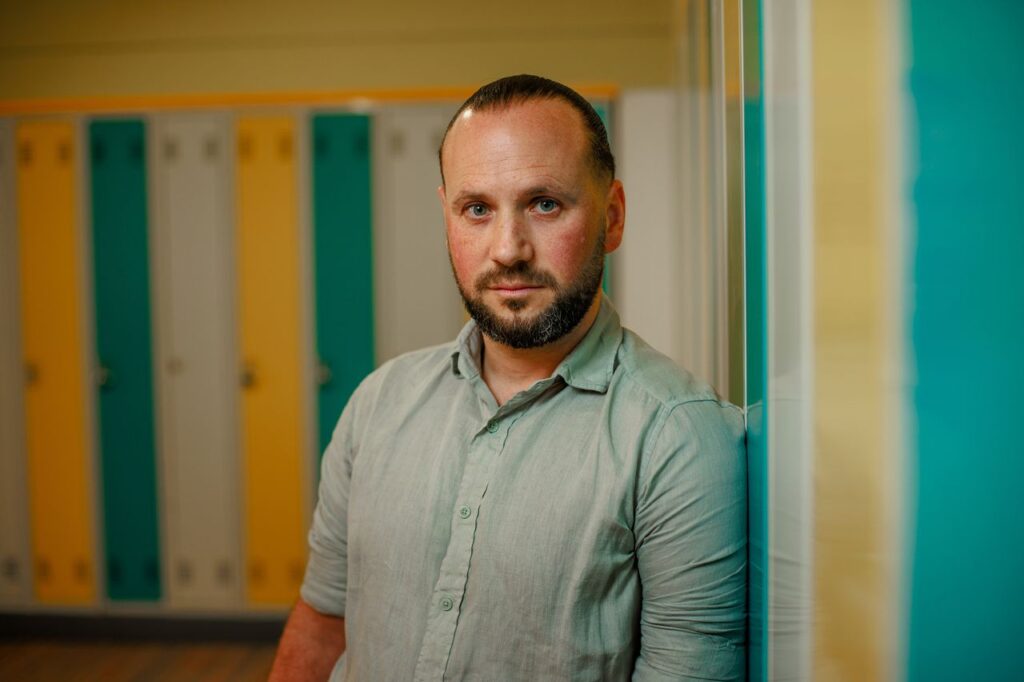
Eoghan Cleary is an Educational Expert with the Sexual Exploitation Research and Policy Institute, currently developing and researching the impact of his educational programme on gender stereotypes, media literacy, sexual violence, and consent. He is a member of the Online Health Task Force and serves as a director on the board of the Dublin Rape Crisis Centre. With 20 years of expertise in the youth and education sector Eoghan has actively advocated for children’s rights and educational reform with a specific focus on sex education and the need for legislation to better protect children online.
Link to the Facing Reality research (full report and summary) can be found here: https://serp.ie/research/research-findings/
‘Too Into You’- how to help and support 18-25 year olds navigate their relationships safely- December 2025
We frequently see training programs tailored for young individuals to assist them in managing their intimate relationships. However, many parents, caregivers, and adults find it challenging to comprehend how relationships between 18-25-year-olds actually function. Their unique language, communication styles, and evolving norms can feel foreign, making it harder to identify signs of unhealthy relationships or determine the right moment and approach to provide support and intervene. This training is designed to equip you with essential insights into the dynamics of coercive control, the red flags of abusive relationships, the green flags of healthy relationships, and assist you in helping the younger generation recognize the difference between healthy and unhealthy relationships. Don’t miss this opportunity to enhance your understanding and make a meaningful impact!
What is Too Into You? Women’s Aid runs the Too Into You project to teach young people about intimate relationship abuse (abuse by a partner or ex). Unfortunately, abuse is common. 1 in 5 young women and 1 in 11 young men aged 18-25 have been subjected to abuse by a current partner or ex in Ireland.
Why attend this webinar? Everyone deserves to have a happy and healthy relationship. But sometimes when you’re going out with someone, it’s hard to know what’s ok and what’s not.
Join the #TooIntoYou webinar from Women’s Aid to:
- Learn about relationships, the good, the bad and the in between,
- Where to get support,
- How to help a friend,
- …and much more!
Find information and support If you are worried about your own, a friend’s, or a student’s relationship you can:
- Call the Women’s Aid 24Hr National Freephone Helpline on 1800 341 900
- Chat to Women’s Aid for support at toointoyou.ie
- Email the TUS Sexual Violence Prevention and Response Manager at SVH@tus.ie or call 086 1916151 (Available 9-5pm, Monday to Friday)
- For further information and support in TUS visit https://tus.ie/esvh/

Mary Hayes, Project Coordinator of the Too Into You Project for Women’s Aid. Mary has a background in women’s health and mental health policy and advocacy. Her goal is for all young people to have happy, healthy and equal relationships.
Creating Consent Culture: Why it’s important and who can help– December 2025
This session will look at two key areas to equip attendees with knowledge and confidence to challenge their university community to work toward a consent culture. First, participants will consider what a university setting looks like that does not have a culture of consent and how failing to actively create this culture impacts the whole institution. Participants will then consider what it means to be a changemaker and how to affect positive culture change within a university community to create consent culture. Participants will consider informal and formal leadership and who has the power and ability to make meaningful change successfully.
Clarissa J. DiSantis is a practitioner, trainer, and leading authority on addressing gender-based violence at universities and was the first person to hold a dedicated role in this area in the United Kingdom. She has developed and delivered related courses in the UK, Egypt, Ireland and the United States. She is the co-author of Addressing Student Sexual Violence in Higher Education, co-editor of Stopping Gender-based violence in Higher Education, and author of Epigeum’s Responding to Disclosures of Sexual Violence 2.0 (UK) online course. She has recently been appointed as Education and Training Lead in the Active*Consent Programme in the University of Galway’s School of Psychology. Prior to this role, Clarissa worked as the Sexual Misconduct Prevention and Response Manager at Durham University, where she was responsible for policy development, case management, student support, and prevention and training. She was recognised for her work with students by Durham Students’ Union and was awarded Best Student Support in 2018 and recognised by Durham University through Durham Women Making a Difference (2019, 2020) and Inspiring Women of Durham (2020). Previously Clarissa gained extensive professional experience working as a forensic mental health social worker in England and as a Licensed Master Social Worker and Licensed Chemical Dependency Counsellor in Texas. She has worked with survivors and perpetrators of domestic abuse and sexual violence and with individuals with acute mental illness and co-occurring substance use issues.
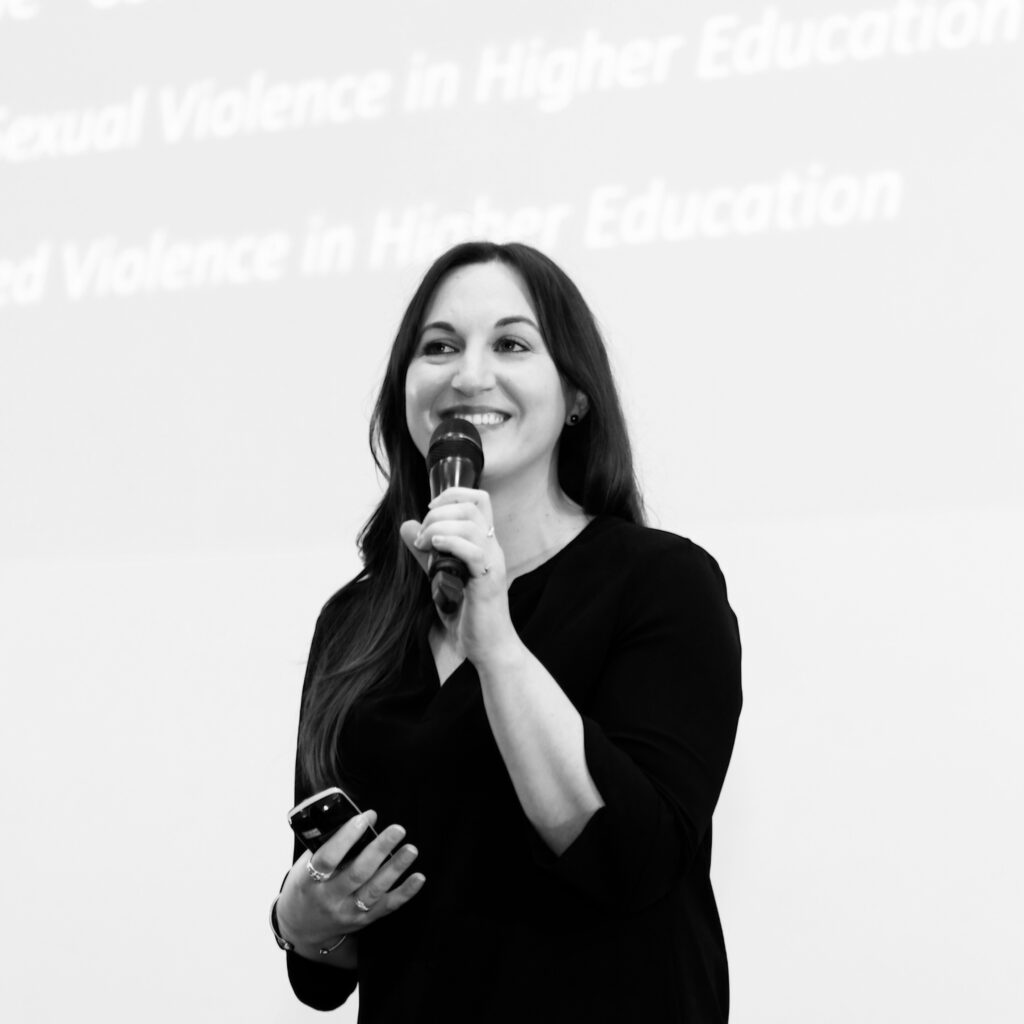
Addressing Student Sexual Violence in Higher Education – Clarissa J. DiSantis|Graham J. Towl
TUS Moodle resources
There is further educational material available on Moodle in the Ending Sexual Violence and Harassment (ESVH), Course: TUS Ending Sexual Violence and Harassment | Moodle and ESVH Allies tiles which you can access independently.
TUS Events
Supporting the implementation of an institution approach to addressing sexual violence and harassment in higher education
This session was delivered by Clarissa J. DiSantis a practitioner, trainer, and leading authority on addressing gender-based violence at universities to forty senior managers from across TUS.
Clarissa provided practical guidance and advice, drawing on her extensive experience at Durham University and University of Galway.
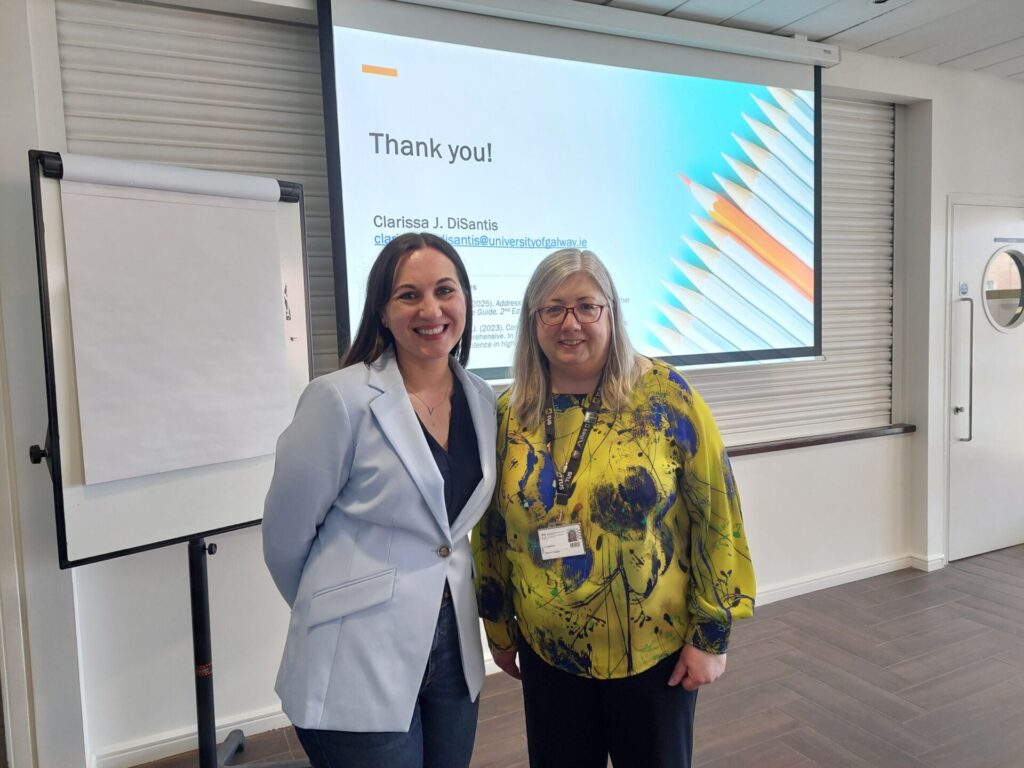
16 Days of Activism against Gender-based Violence
TUS and Universities Across Ireland Unite For #16Days Of Activism
UNiTE to end violence against women #NoExcuse
The Technological University of the Shannon (TUS) will join 15 universities from across Ireland to take a powerful stand during the global campaign ‘16 Days of Activism against Gender-Based Violence’.
Starting today, on the International Day for the Elimination of Violence against Women, this initiative will highlight the urgent need to eliminate violence against women and girls, underscored by this year’s theme: “Every 11 Minutes, a Woman is Killed. #NoExcuse.”
The 16 Days of Activism campaign, which continues through December 10 (Human Rights Day), was launched in 1991 by the Women’s Global Leadership Institute as a call to prevent and eliminate gender-based violence worldwide. Now, with the backing of the United Nations Secretary-General’s UNiTE by 2030 to End Violence against Women campaign, universities, organisations, and individuals around the globe are joining the cause.
Rabiya Ali, Sexual Violence Prevention and Response Manager at TUS, said: “This campaign highlights the importance of higher education institutions working together on the issue of gender-based violence. We know that in Ireland 3 in 5 people aged 18-25 have experienced, or know someone who has experienced, intimate relationship abuse (Women’s Aid, 2021).
“These staggering figures needed an urgent collective response, and with our unique roles within universities, we agreed to work together on this important prevention campaign. While TUS coordinated the campaign, it was created by SVH and EDI managers from across the sector, with everyone contributing to its development and roll-out across the country. This is a collaborative effort, and I am so grateful to all our partner institutions”.
All participating universities are dedicated to driving change, raising awareness, and encouraging every member of the community to actively participate during these 16 Days of Activism. A series of events and campaigns, both online and offline, will serve to educate, engage, and empower participants in advocating for a future free from gender-based violence.
“Violence against women and girls is not inevitable – it can and must be stopped. By standing together and using our voices, we can turn awareness into action, creating a safer and more equal society for all,” said a spokesperson for UNiTE.
How to Get Involved:
Promote Zero Tolerance: Use your voice to spread a message of zero tolerance for violence against women and girls.
Engage Leaders: Advocate for policies that enforce zero tolerance towards violence and protect women’s rights.
Support Local Women’s Organisations: Donations and volunteer support are critical to the success of these organisations.
Share Awareness Using #NoExcuse: Amplify the message on social media, in schools, workplaces, and communities.
All participating universities call upon students, staff, and the wider community to participate in these 16 Days of Activism to foster a world where no woman or girl lives in fear of violence.
16 days Orange light HEI’s across Ireland
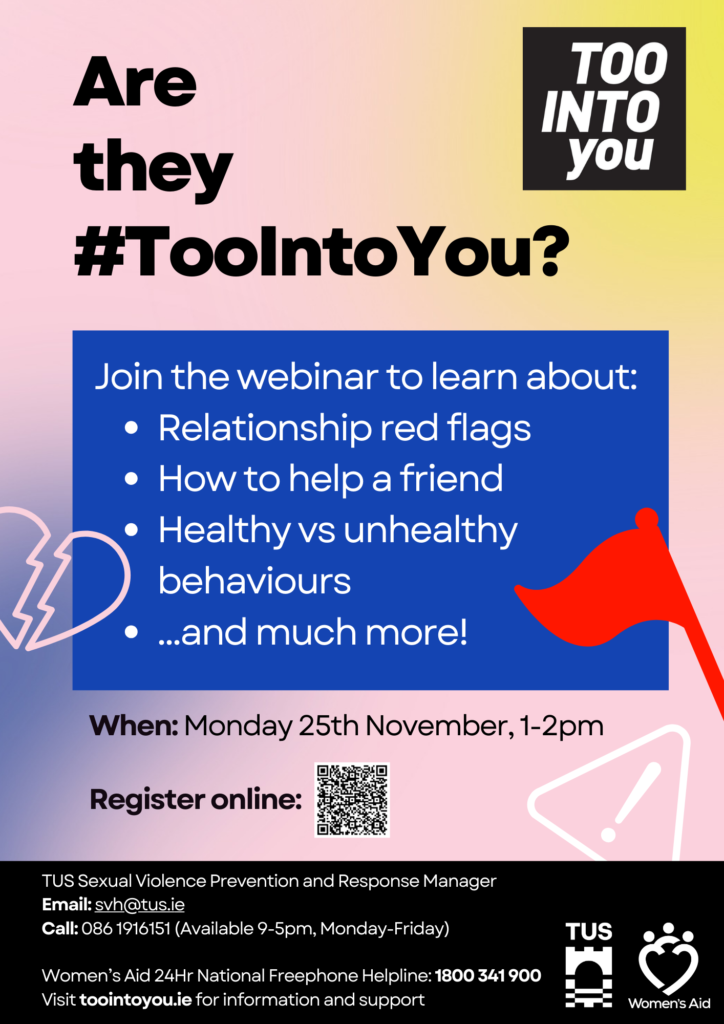
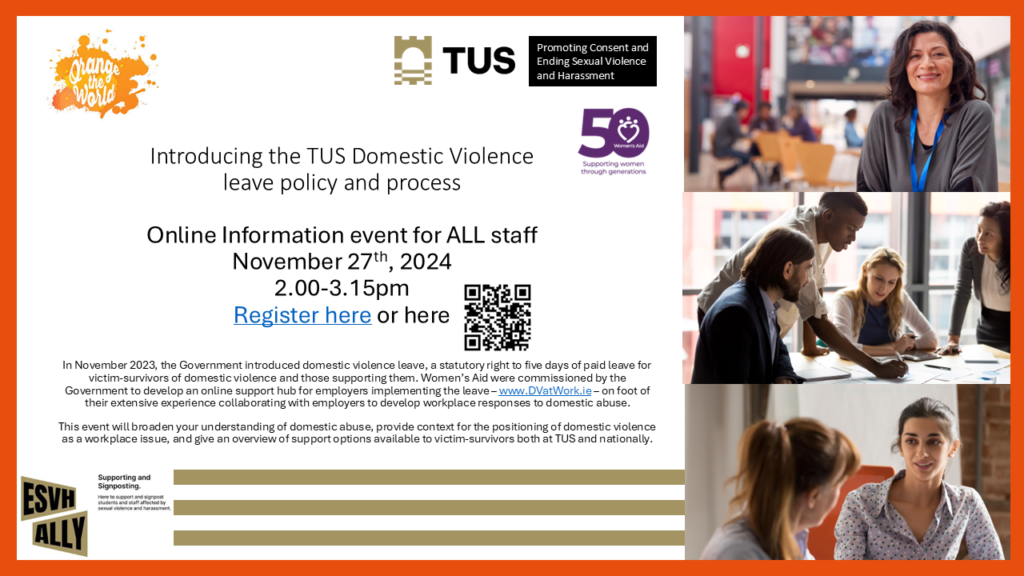
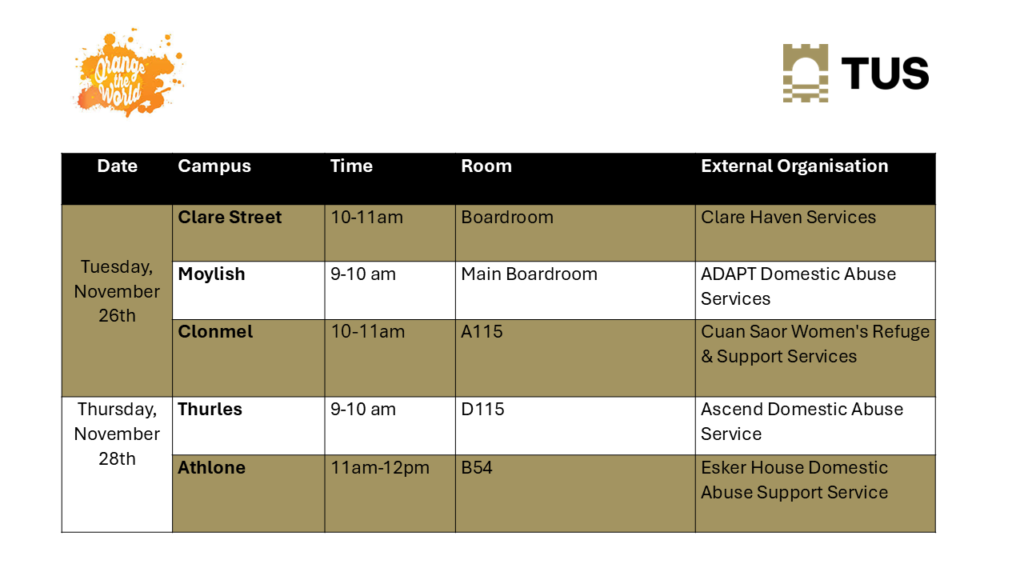
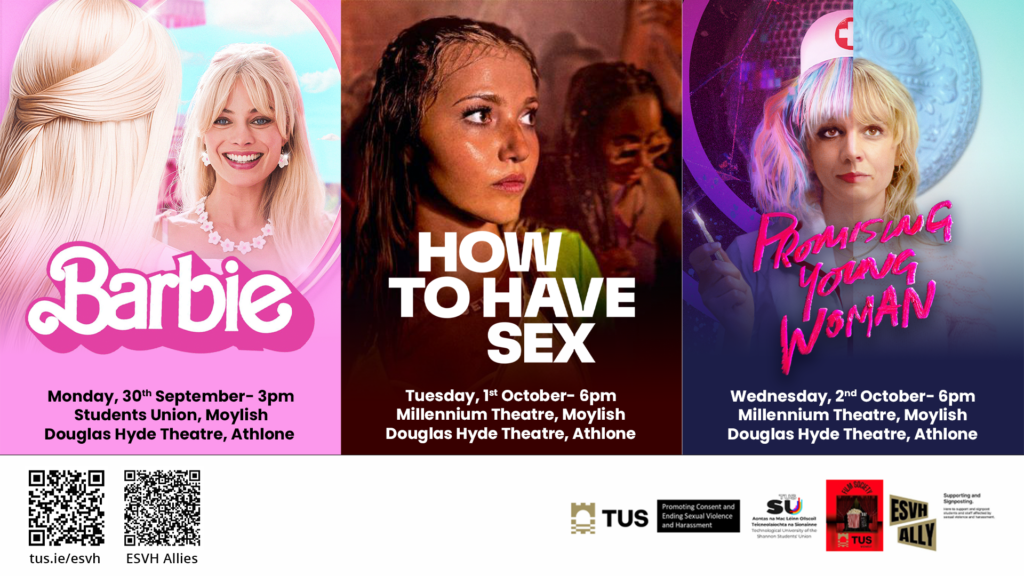
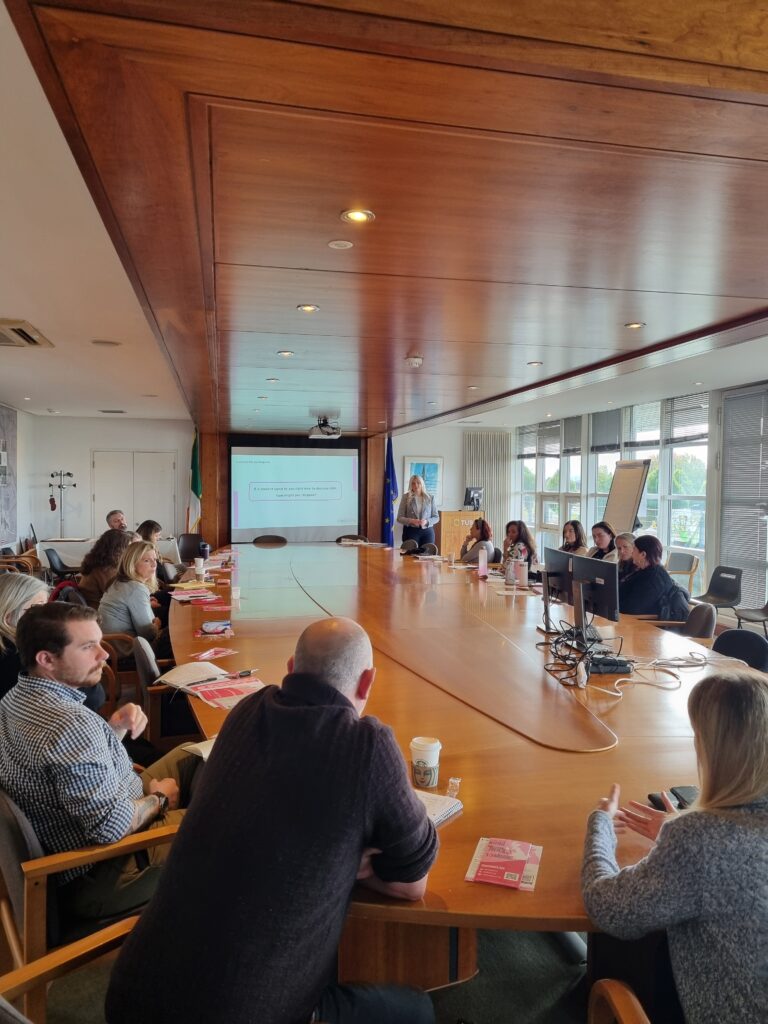
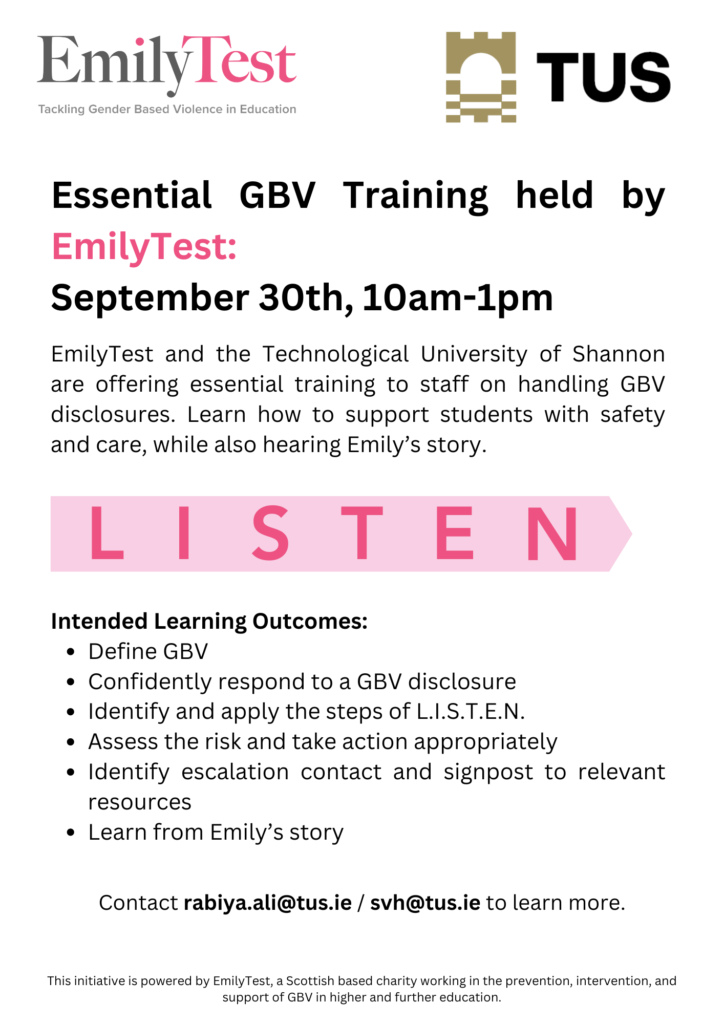
TUS Social Activist Digital Badge
This badge is open to all TUS students, and is delivered through both online and in-person learning. Undertaking this badge will increase your confidence in responding to and being aware of the social challenges such as bullying, harassment, sexual violence, suicide prevention and intervention. Achieving this badge shows your willingness to go the extra mile in increasing your knowledge and skill set, and recognises your efforts to bring about positive social change. Email kathy.heavey@tus.ie for further information or register here.
‘Be the culture change you want to see’
Moving parts
This student-led project includes several animations that draw attention to issues across the spectrum of sexual violence, including sexual consent, bystander intervention, and image-based sexual abuse.
The name “Moving Parts” was chosen to reflect the spectral nature of sexual violence, and how it is affected by a multitude of factors – from social norms and gender roles to pop culture. As such, we must take a multi-faceted and dynamic approach to dismantle rape culture, and promote a culture of consent through education, policy and the arts.
Moving Parts animations are freely available to educators and student leaders for general use (i.e student orientations, consent workshops, sexual violence prevention initiatives, etc).
These animations are available in both English and Irish with subtitles for educational purposes. Irish videos with English subtitles are available upon request. ‘Moving Parts’ is a collaboration between Active* Consent, Institute of Art, Design and Technology animation students and the University College Cork Bystander Intervention programme.
Moving Parts Digital Animation Series




